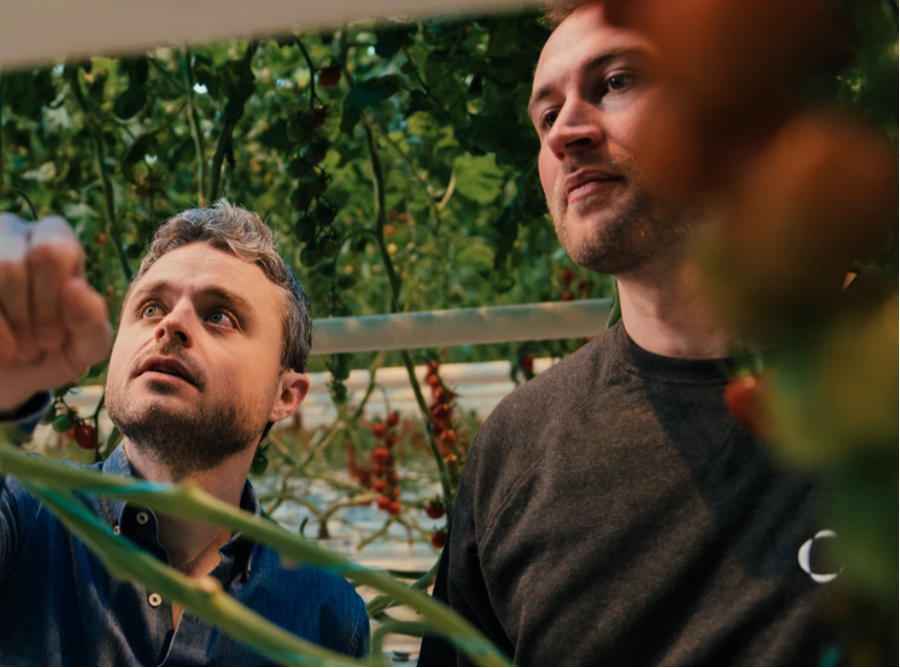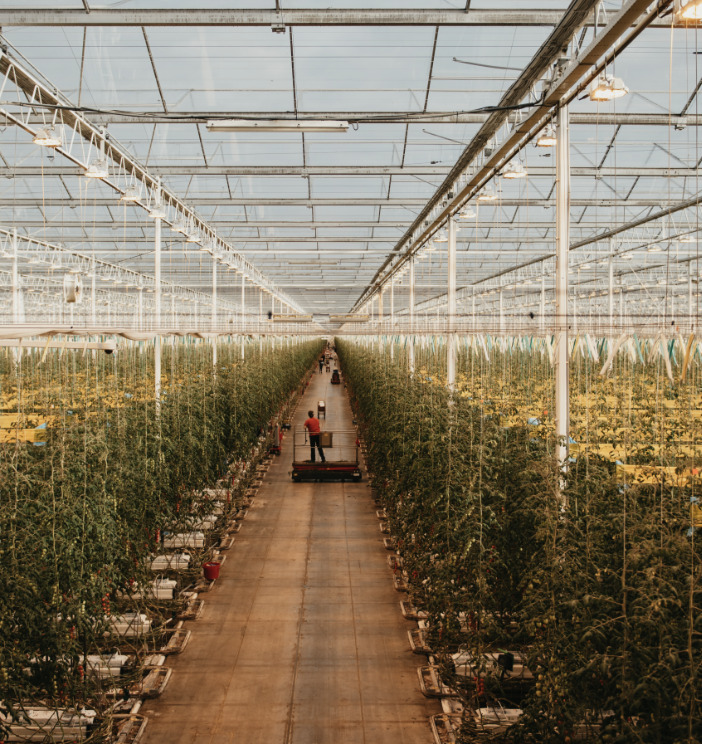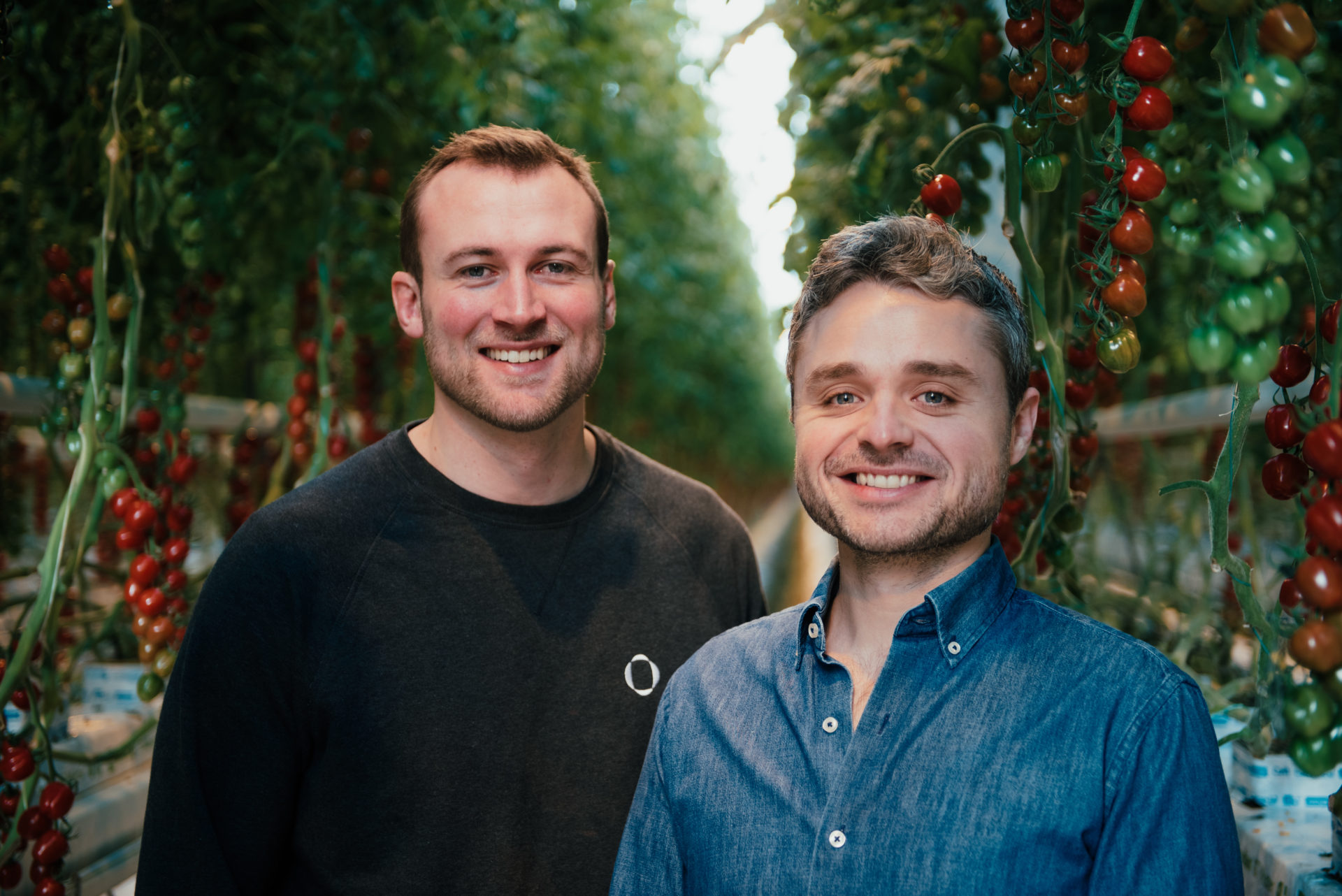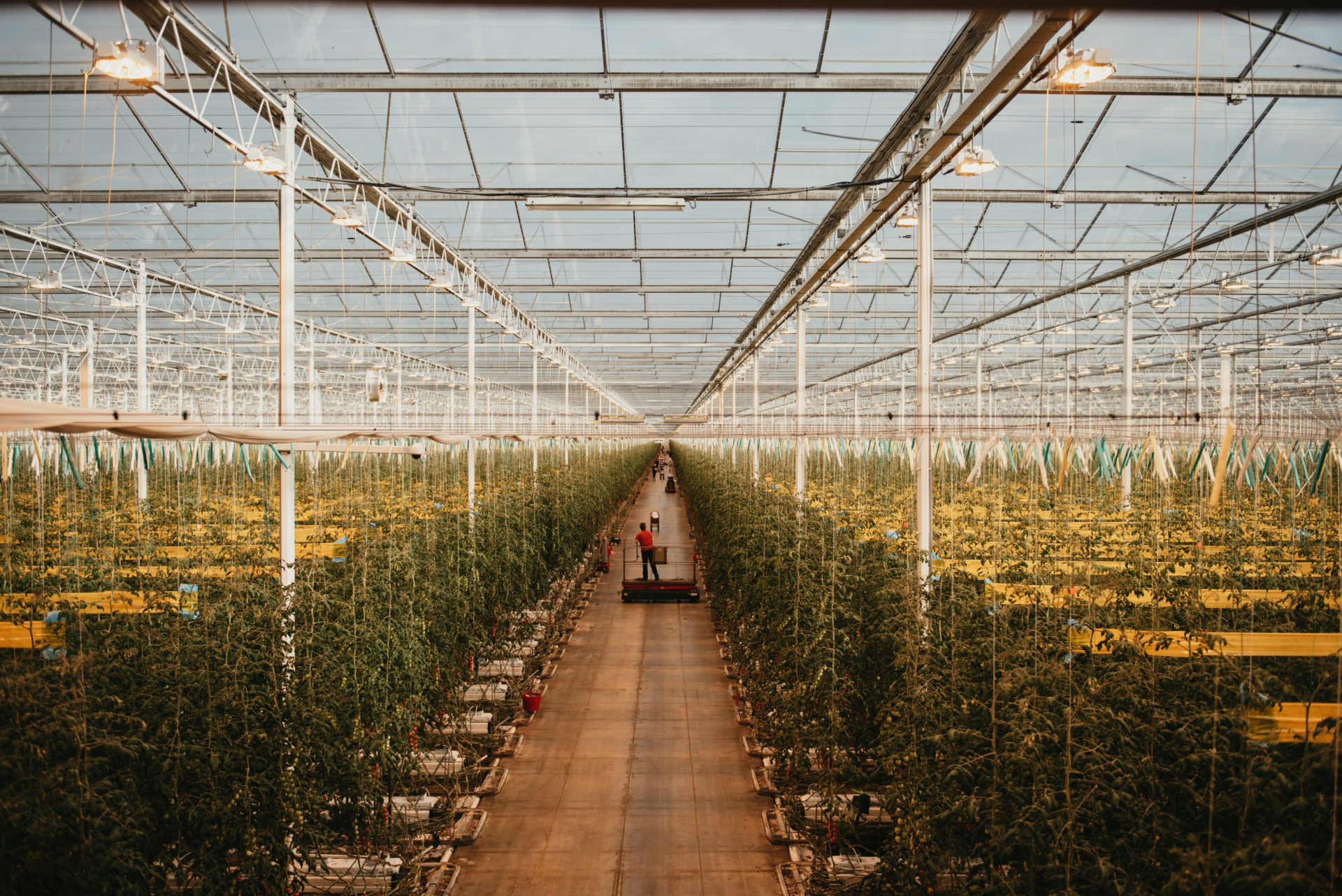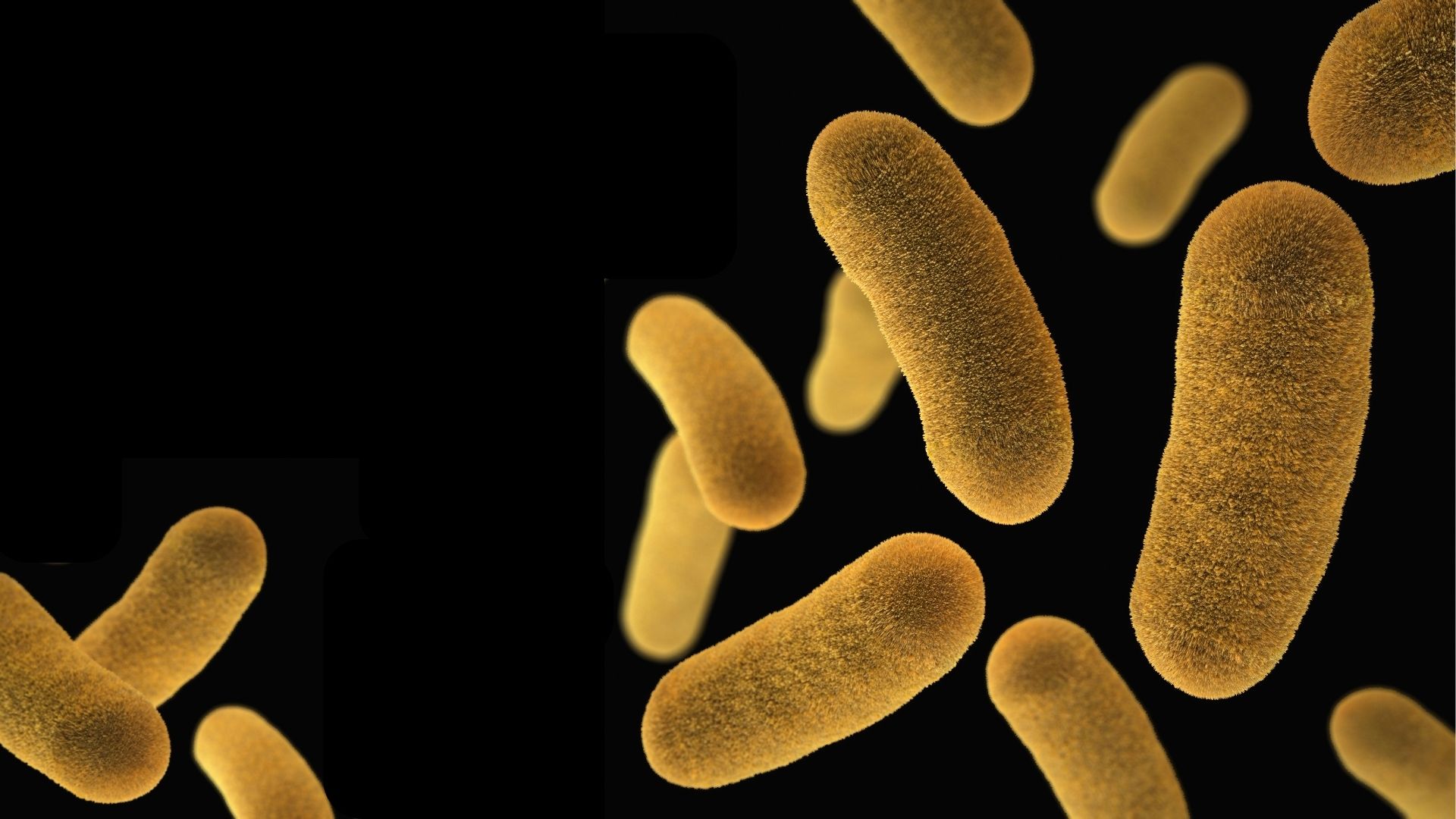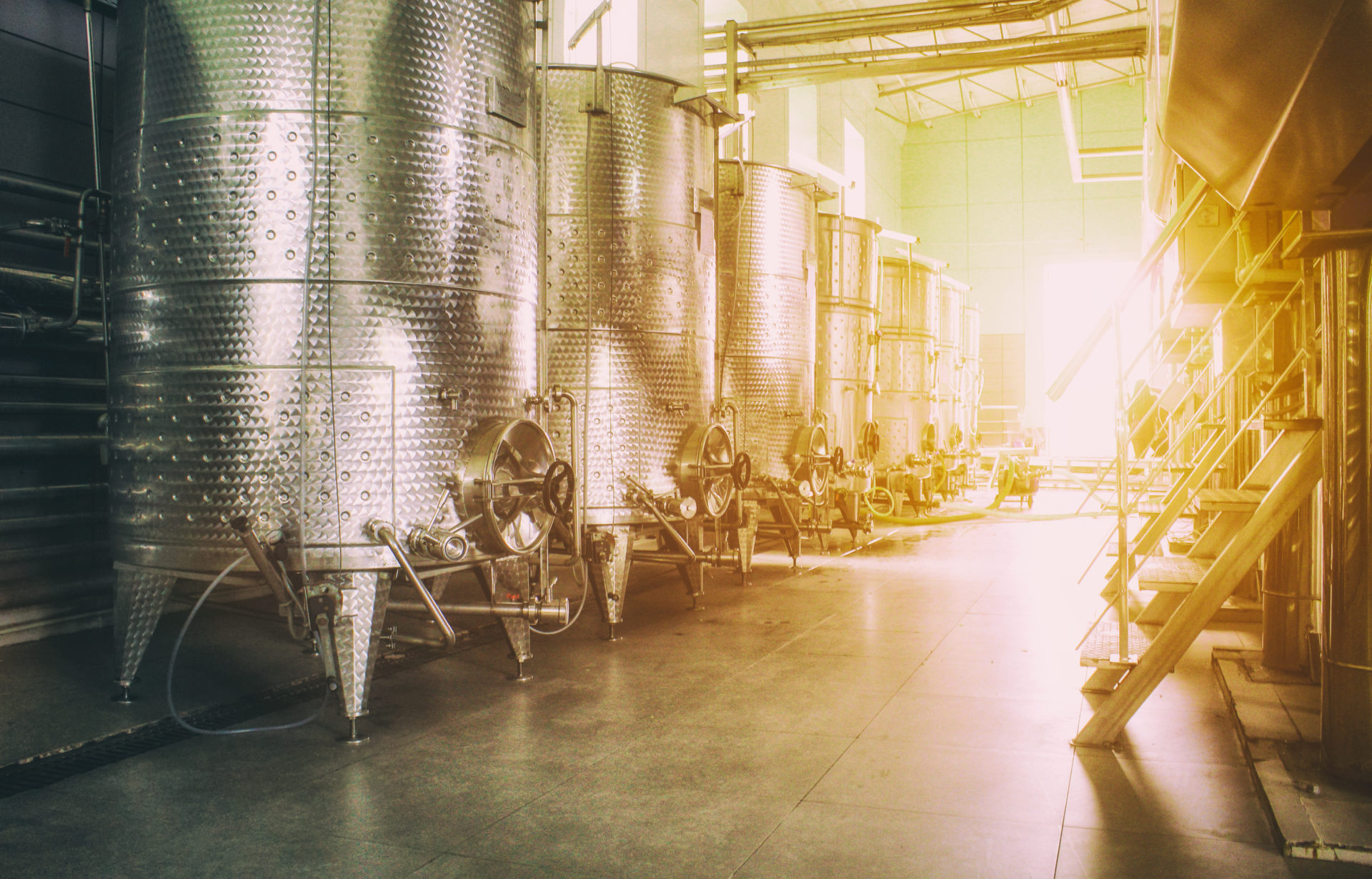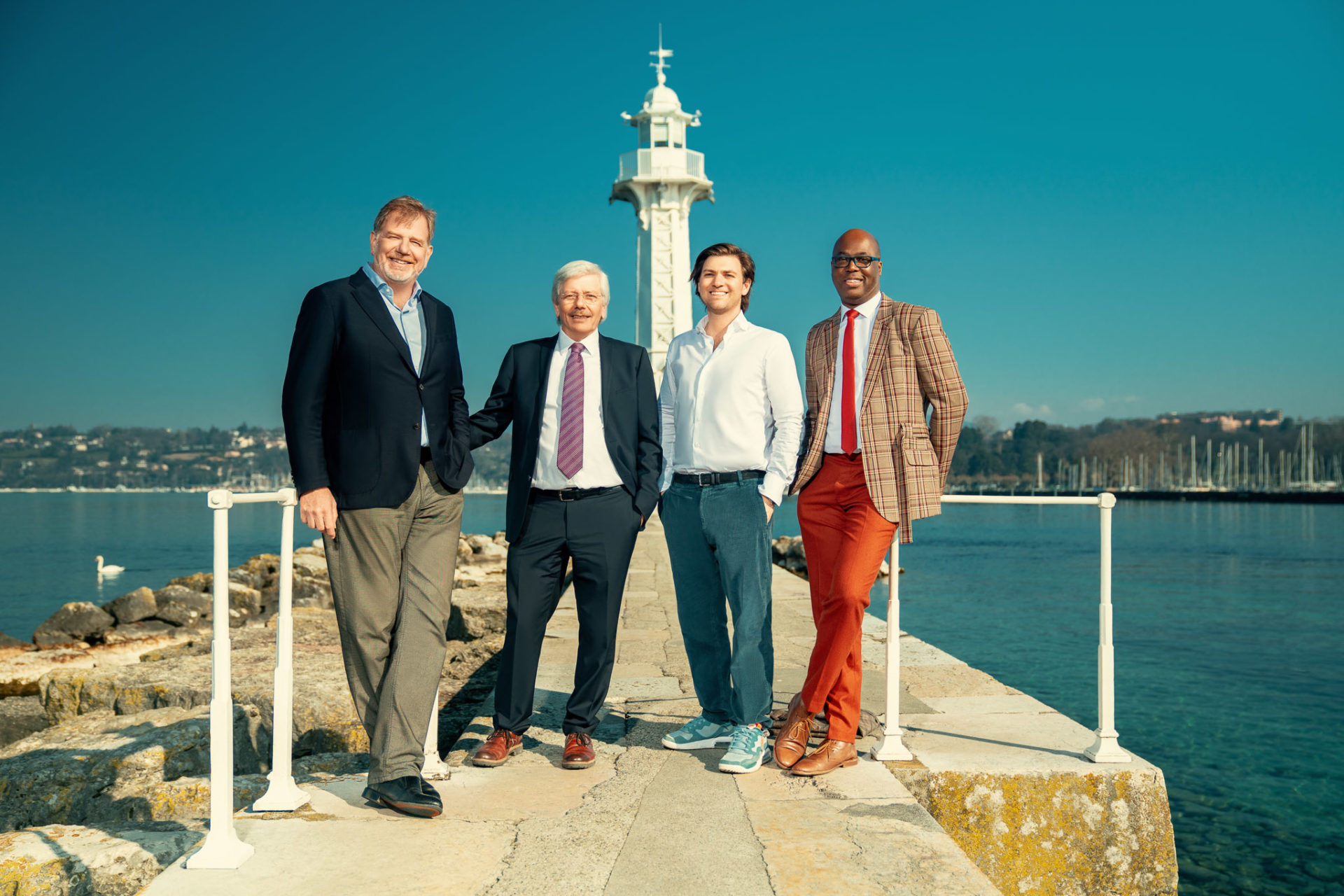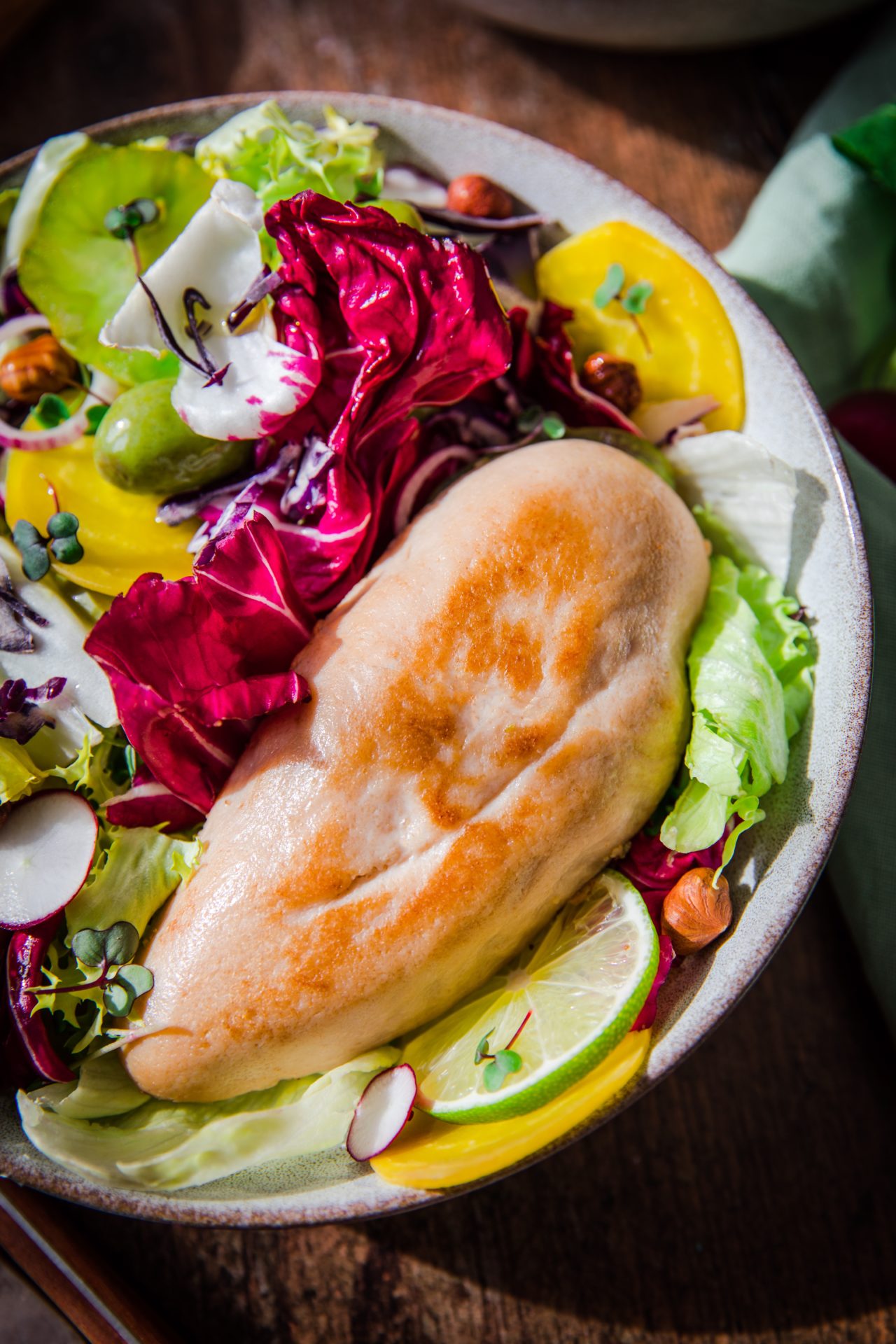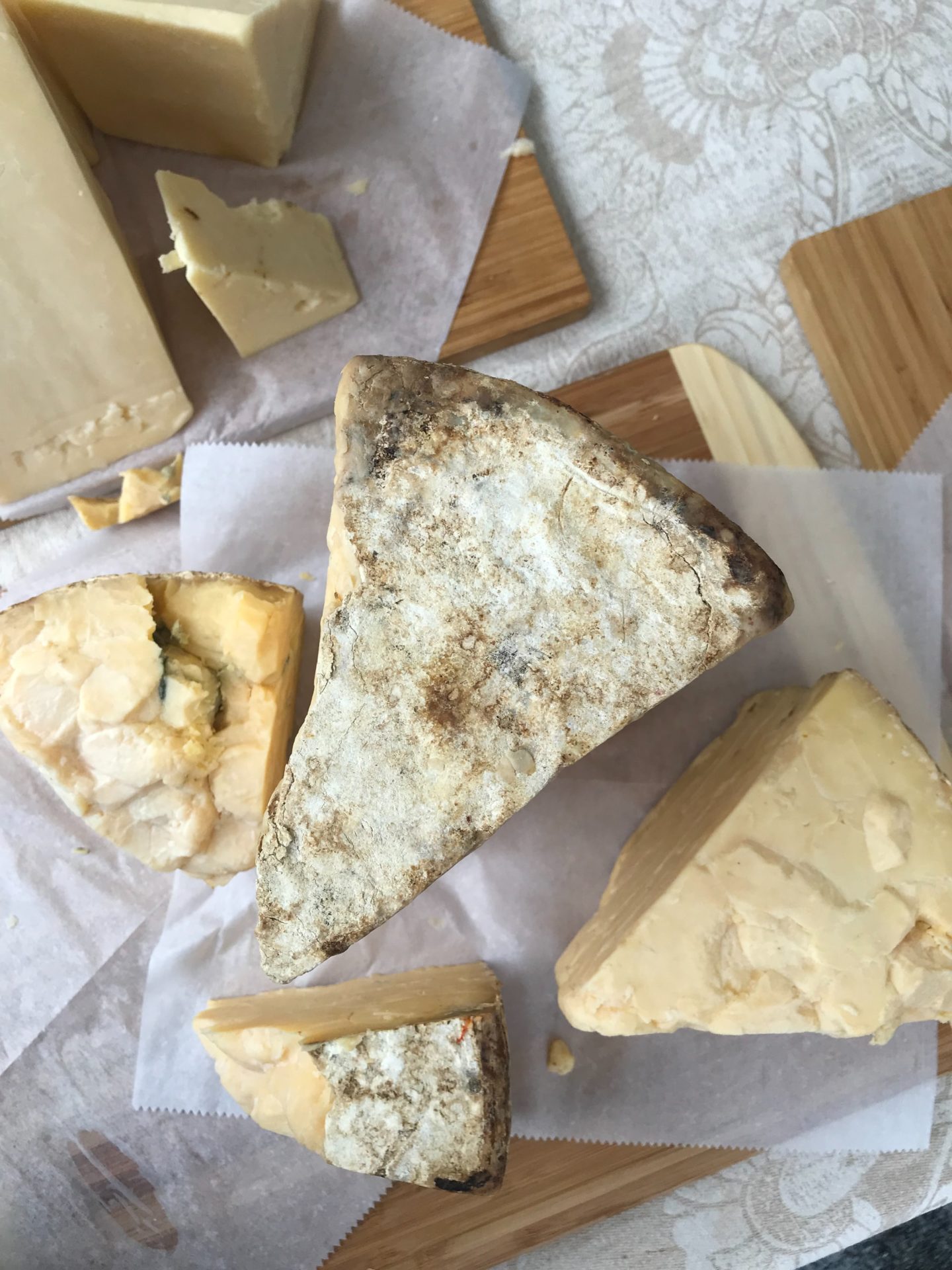Funding Stage: Series A
Robovision
Source.ag
Source.ag
Feeding a healthier tomorrow with A.I. powered, high-tech indoor farms.
Source.ag is developing groundbreaking A.I. products that will power safe, reliable and climate-resilient food production in indoor agriculture.
Entrepreneurs
Rien Kamman, Ernst van Bruggen
Founded
2020
Partnered
2022
HQ
Amsterdam, NL
Category
Accelerating Regenerative Agriculture
A.I. that will move indoor farming from craft to
mass production
Source.ag, is building an AI-powered software platform that enables indoor growers to dynamically adapt their cultivation strategy, optimizing resources and ultimately supporting sustainable production of fruits and vegetables.
Greenhouse agriculture is a proven solution for sustainable, local, and climate-resilient food production: it produces up to 15 times higher yields without the need for arable land and uses up to 20 times less water as compared to traditional farming methods. Today, 70% of global freshwater withdrawals are used for food production, and 46% of the planet’s habitable land is used for agriculture. With the global population growing to an estimated 10B by 2050, resource efficient farming methods need to be scaled up globally to meet the demand for healthy food in a sustainable manner. Source.ag’s cutting edge A.I. platform empowers more growers to operate more acres in more locations more efficiently, thereby accelerating the global adoption of greenhouse agriculture.
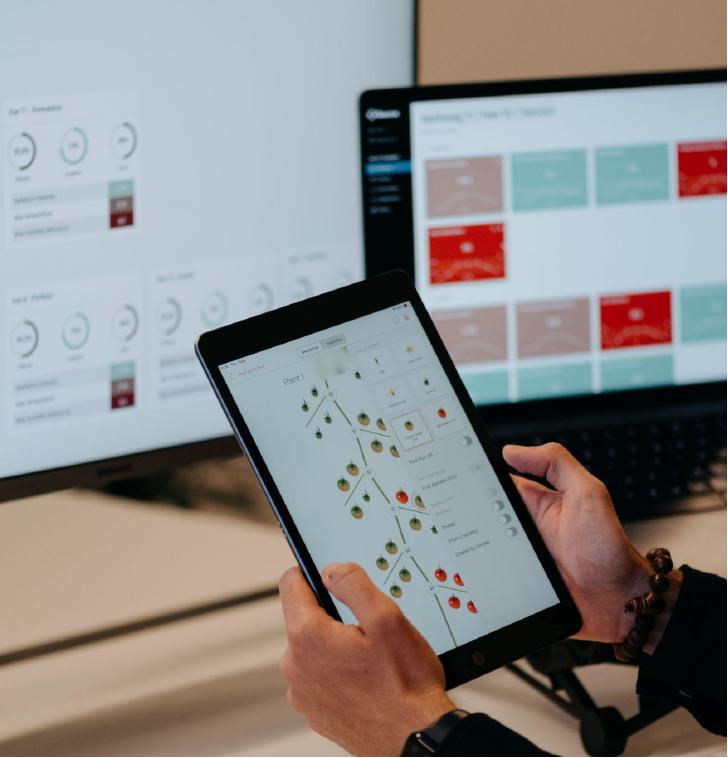
The Dutch company is partnering with the world’s leading growers to help increase vegetable yields in the face of the growing energy and climate crises. With the global demand for greenhouse agriculture rising, Source will empower growers worldwide to accelerate their growth and operate facilities more efficiently.
Source.ag focuses on the largest global fresh vegetable segments such as tomato and peppers, with the ambition to ultimately help all fruit and vegetable growers. At Source, a world class team of experienced engineers and plant scientists built the most advanced A.I. powered digital support system for indoor agriculture. Source has partnered with the leading growers since day one to ensure that their system addresses growers’ precise pain points. Source’s algorithms simulate plant developments to define growth strategy, support decision making and help growers execute an optimal cultivation strategy.
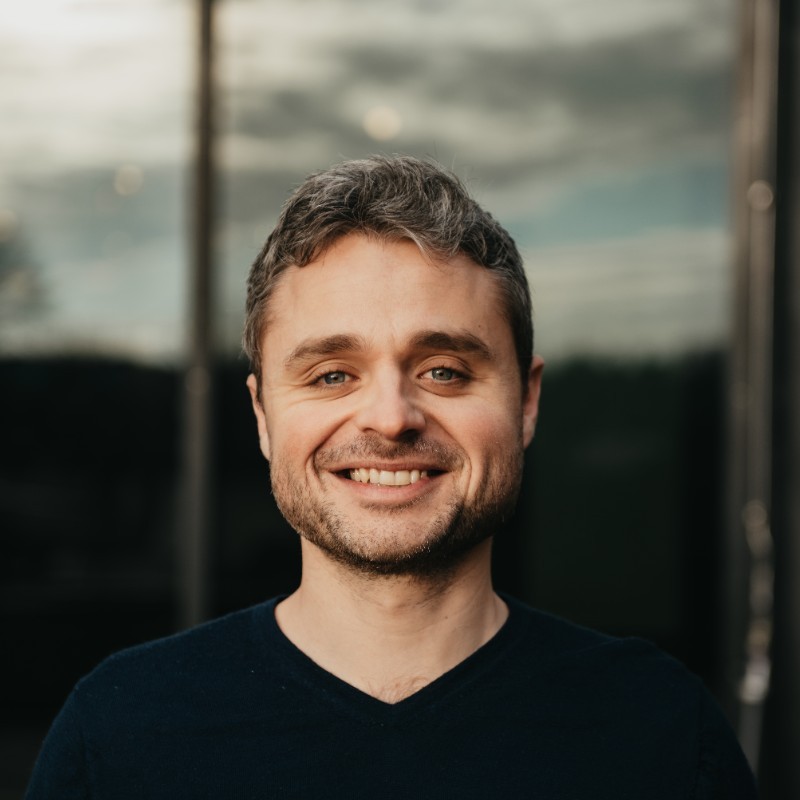
CEO and Co-Founder
Astanor is the perfect fit for us as their team brings deep experience in AgTech and shares our values on creating positive impact in the world. Astanor understands the unique dynamics in Agriculture, and has already been invaluable in our journey. I’m convinced they are the right partner for us in our mission to bring more healthy food to more people using fewer resources.
MicroHarvest
MicroHarvest
Nutrients that feed the world
A resilient food system, using the power of microorganisms
Entrepreneurs
Kate Bekers, Luisa Cruz, Jonathan Roberz
Founded
2021
Partnered
2022
HQ
Hamburg, Germany
Category
Innovating Agriculture Transformation Processes
Smaller, better, faster.
Global demand for protein is in the range of hundreds of million tons per year. This value is growing beyond what our current production systems can deliver. MicroHarvest is leveraging nature’s most efficient bacteria to make better, healthier and tastier protein. With their novel production system for single cell protein, they address the pressing need for sustainable alternatives to meet the growing global protein demand. The company directly tackles the growing demand for alternative protein ingredients for human food, a $14Bn market.
MicroHarvest’s proprietary technology enables the production of protein using bacteria at a speed and efficiency that greatly exceeds existing approaches. MicroHarvest’s production speed is unparalleled: raw materials can be turned into final protein products within a single day (compared to months for plant-based or animal protein).
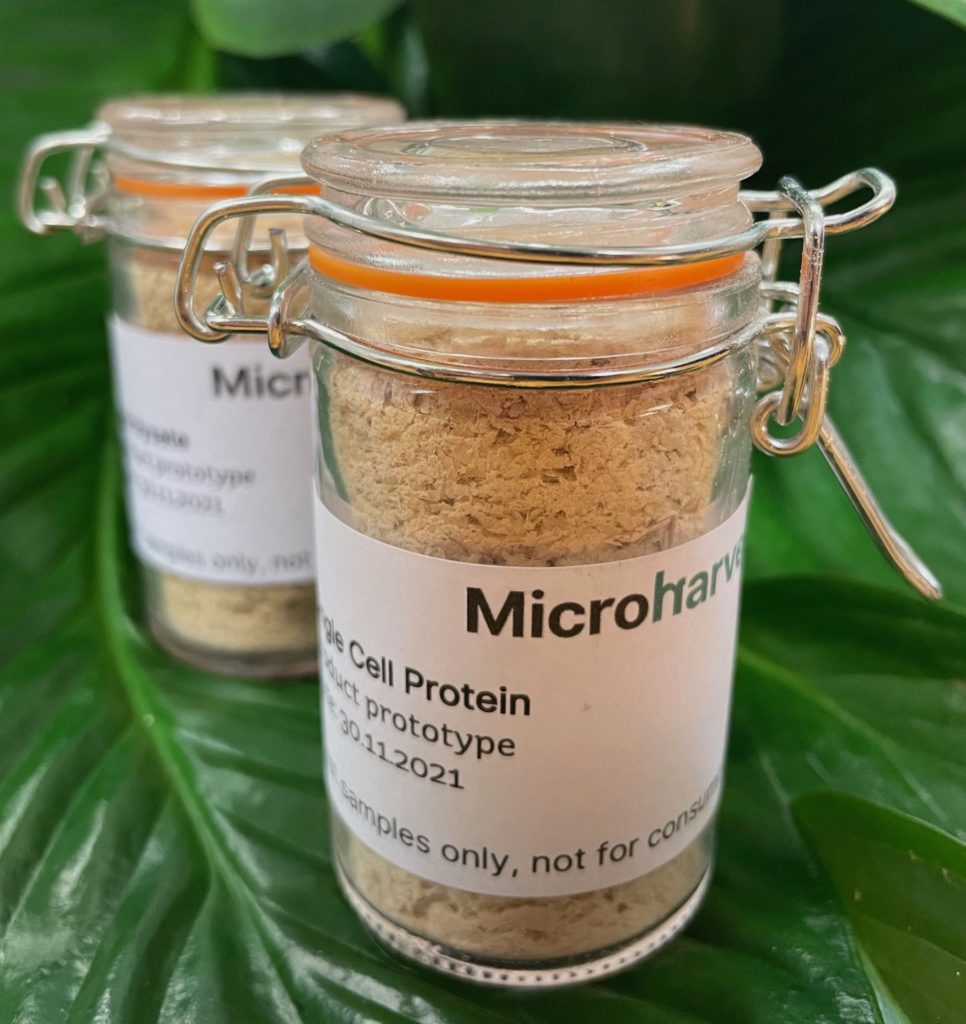
Being able to ramp up production quickly is key to becoming a relevant player in the B2B ingredients market. It enables decentralized production of sustainable, nutritious, high-quality and safe protein. Their ‘elegantly simple’ fermentation technology approach can be scaled in a decentralized way to produce single-cell proteins for different use cases varying from pet and human food to animal feed.
MicroHarvest is led by highly complementary founders. CEO Kate Bekers combines both biotech expertise and business development acumen, CTO Luisa Cruz spent her entire academic and professional career in bioprocessing and COO Jonathan Roberz has been successful as an entrepreneur since graduating high school.
At scale, MicroHarvest products can become a significant contributor to the urgently needed transition towards sustainable, affordable proteins. In addition, the decentralized production empowers the development towards more food independence and supply chain resilience.
MicroHarvest news
-
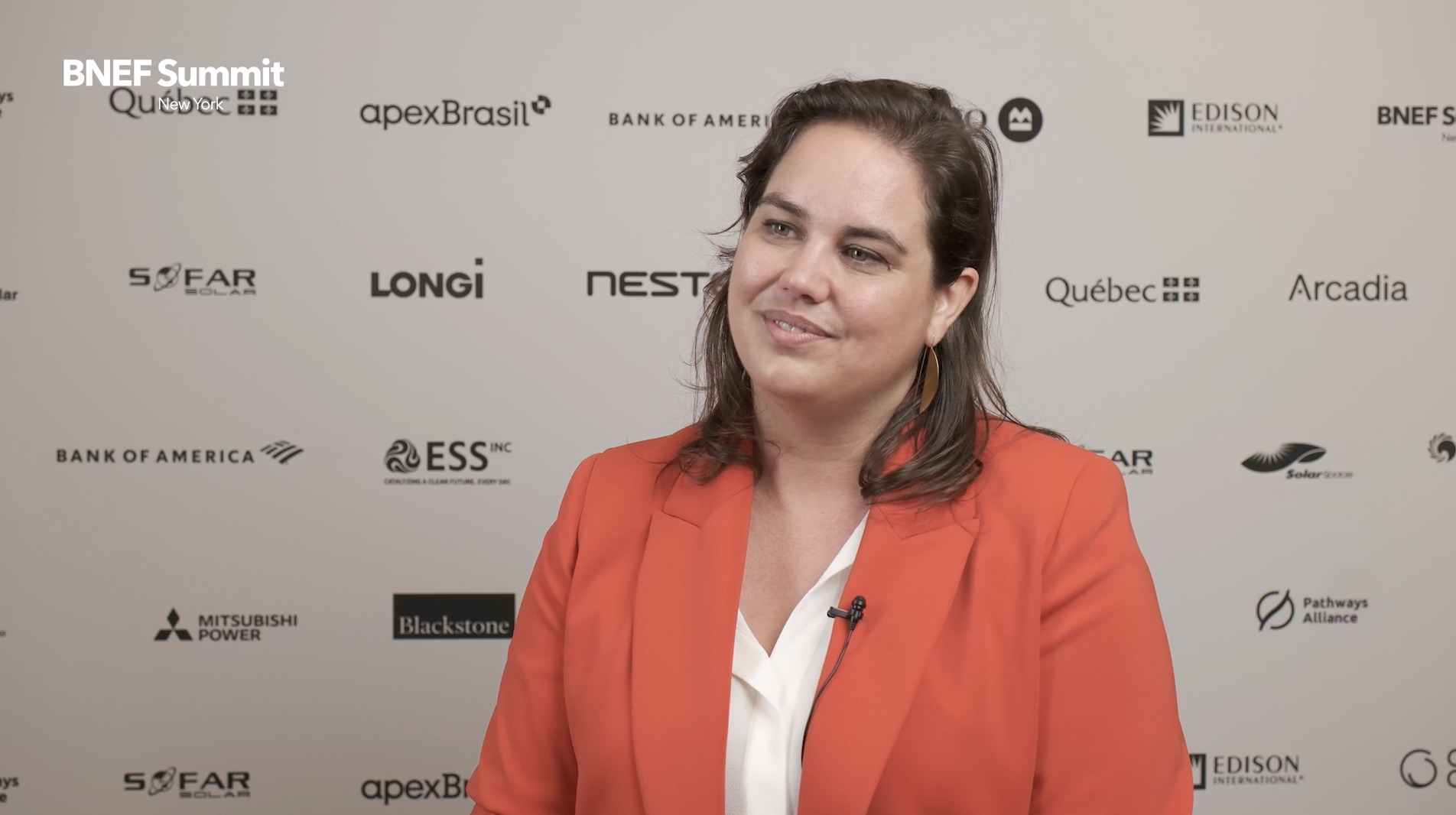
Bloomberg Quicktake with Katelijne Bekers, Co-founder &CEO of MicroHarvest
-
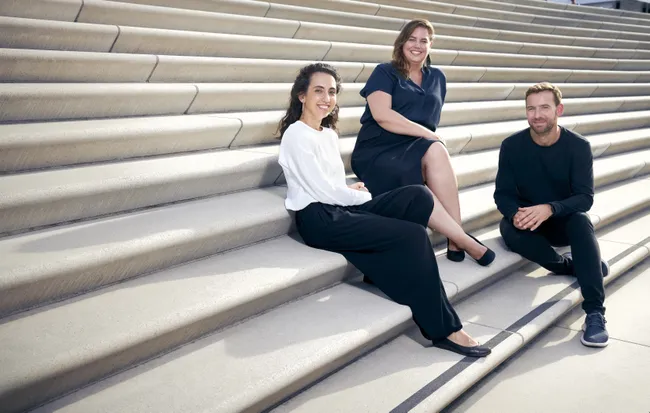
MicroHarvest makes Bloomberg awards shortlist
-
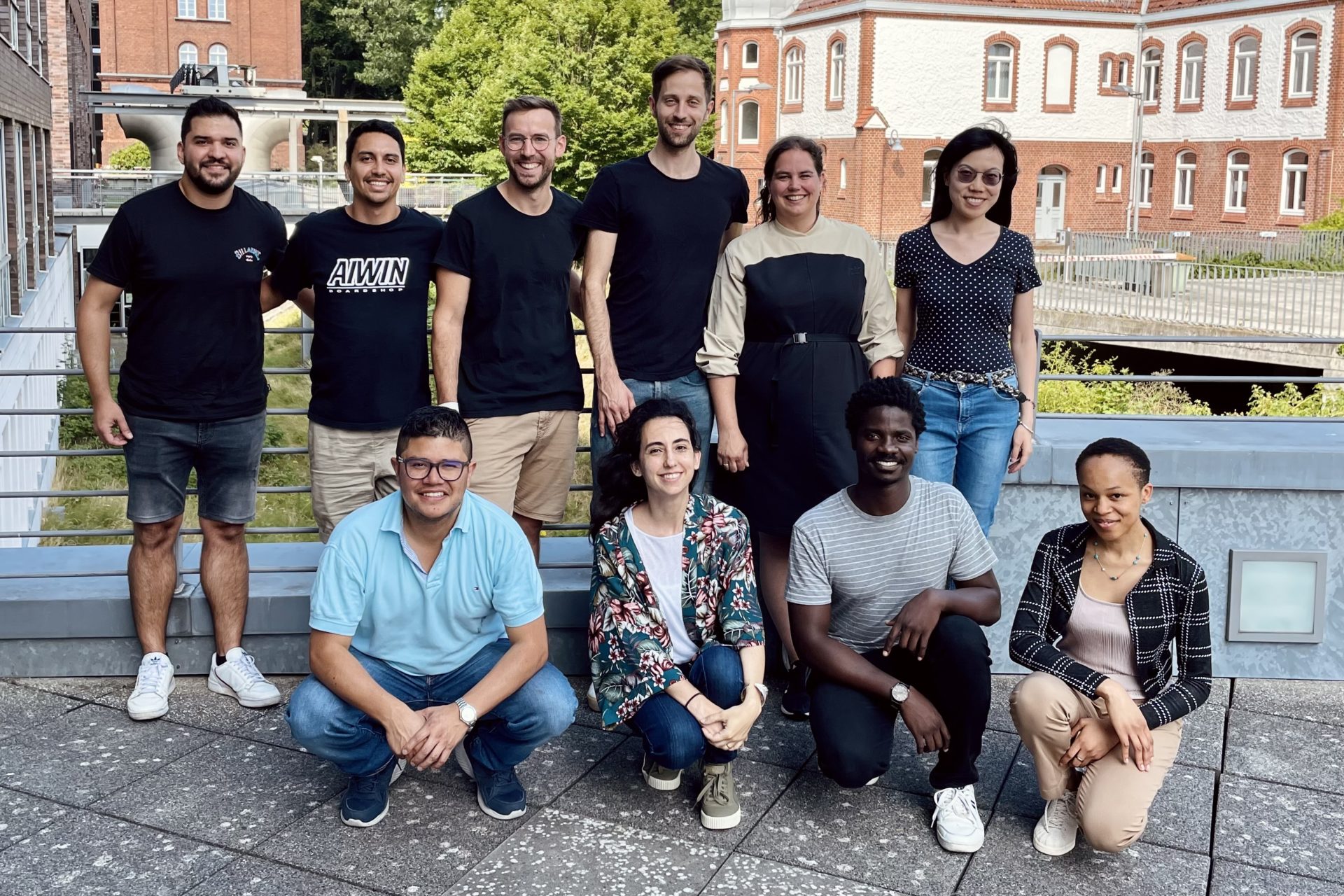
Hamburg’s MicroHarvest reaps in €8.5 million to build protein production system
-
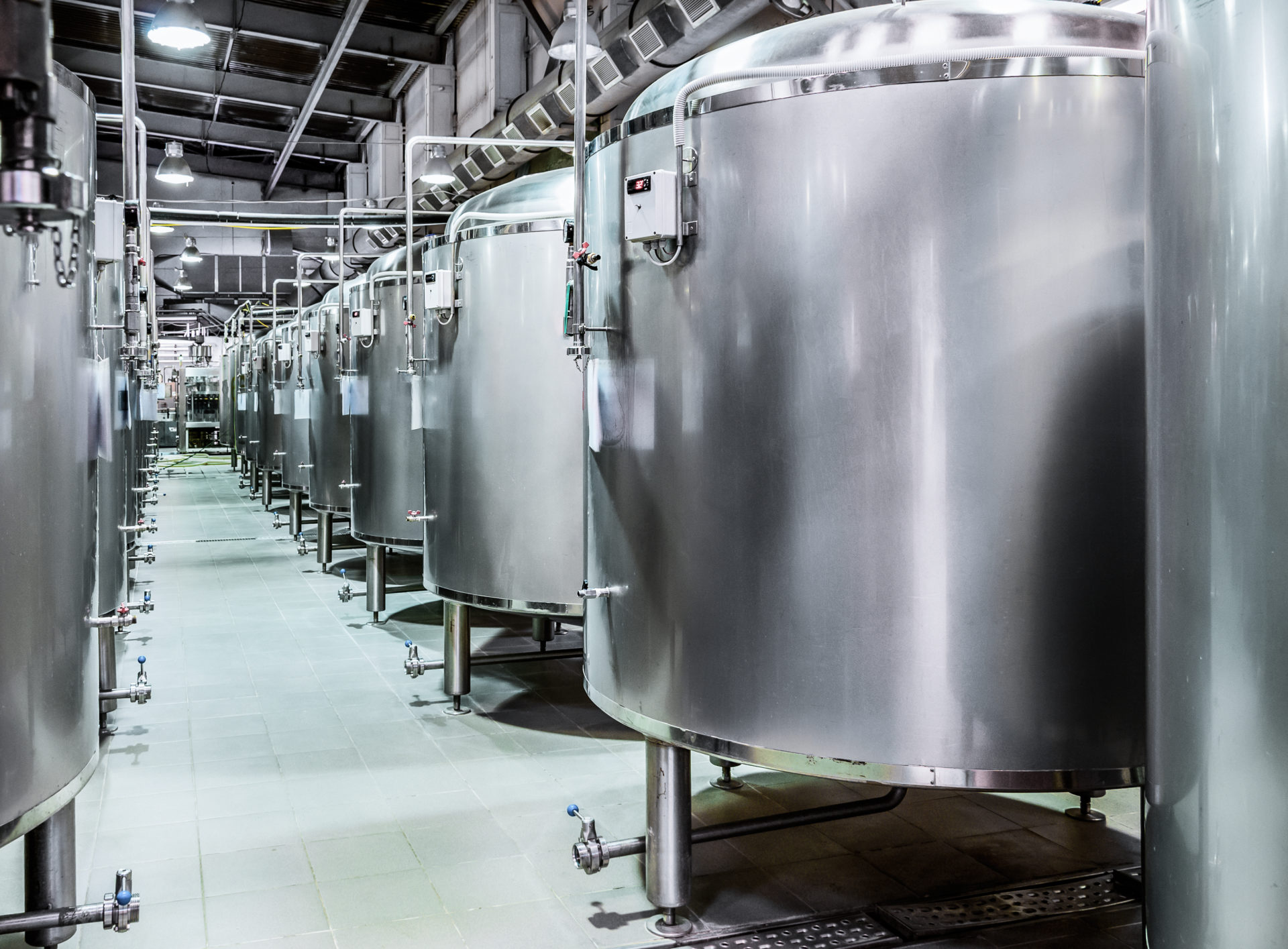
The next generation of fermentation technology: Why we invested in Standing Ovation and MicroHarvest
-
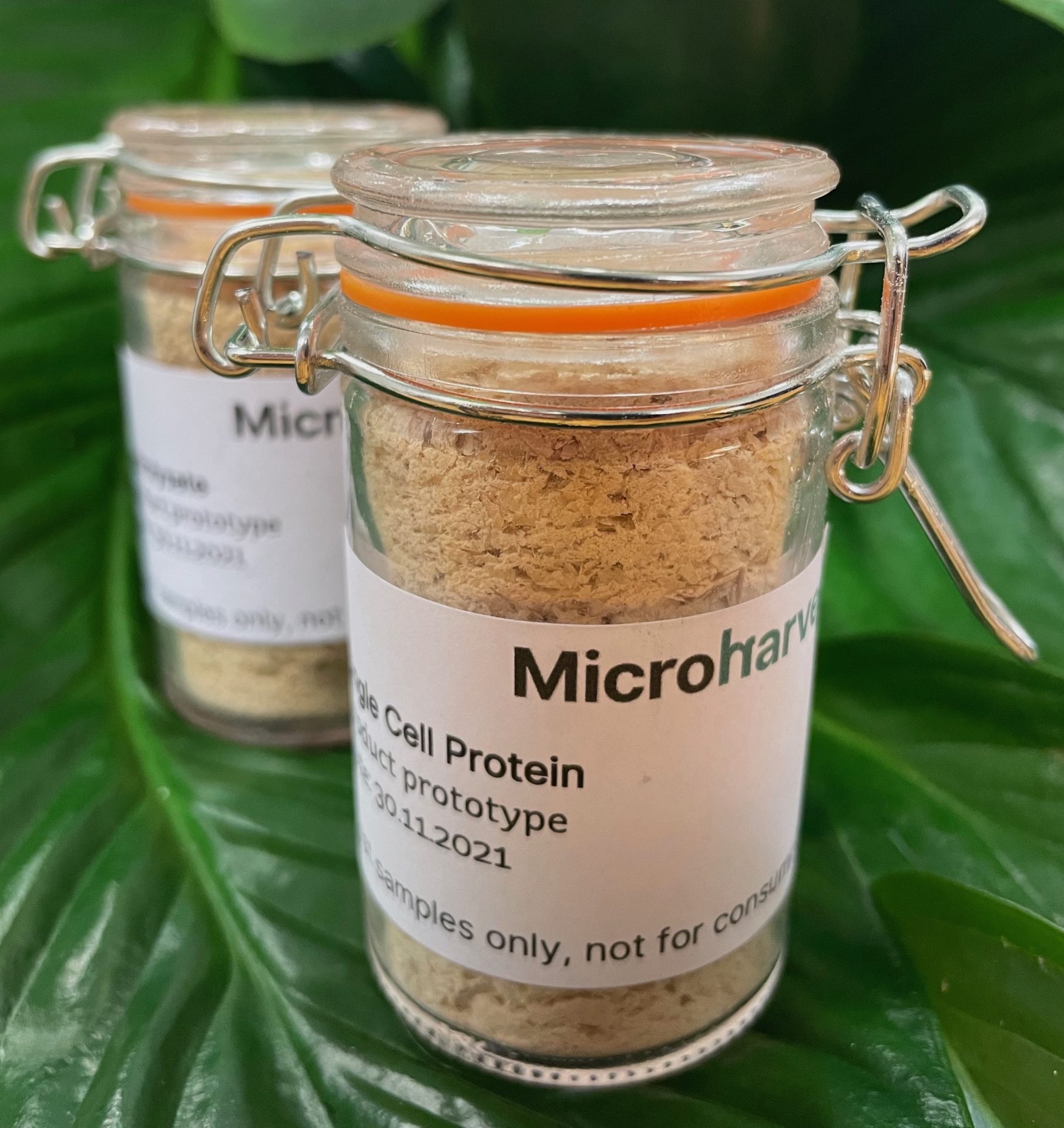
MicroHarvest Opens Subsidiary in Portugal
Planetary
Planetary
Scaling the new food evolution
Building the bioreactor capacity the food industry needs
Entrepreneurs
David Brandes, Ian Marison
Founded
2021
Partnered
2022
HQ
Cologny, Switzerland
Category
Innovating Agrifood Transformation Processes
Bringing fermentation capabilities to scale
Planetary is enabling the scaling of the protein revolution by providing fermentation capabilities for the future. Their technology is laser-focused on scaling global upstream and downstream fermentation capacity to unlock the potential of alternative protein products. Because fermentation-based alternate protein production is today still a young industry with many companies in early phases of R&D, Planetary is building the bioreactor capacity to help these companies scale rapidly.
Within the food space alone, fermentation tech promises to deliver sustainable and functional replacements for meats, milk, cheese, eggs and more. Fermentation technology is hailed as the holy grail of alternative protein, but today only 5% of the total global fermentation capacity is designed for food products, with most of it being already contracted for the foreseeable future.
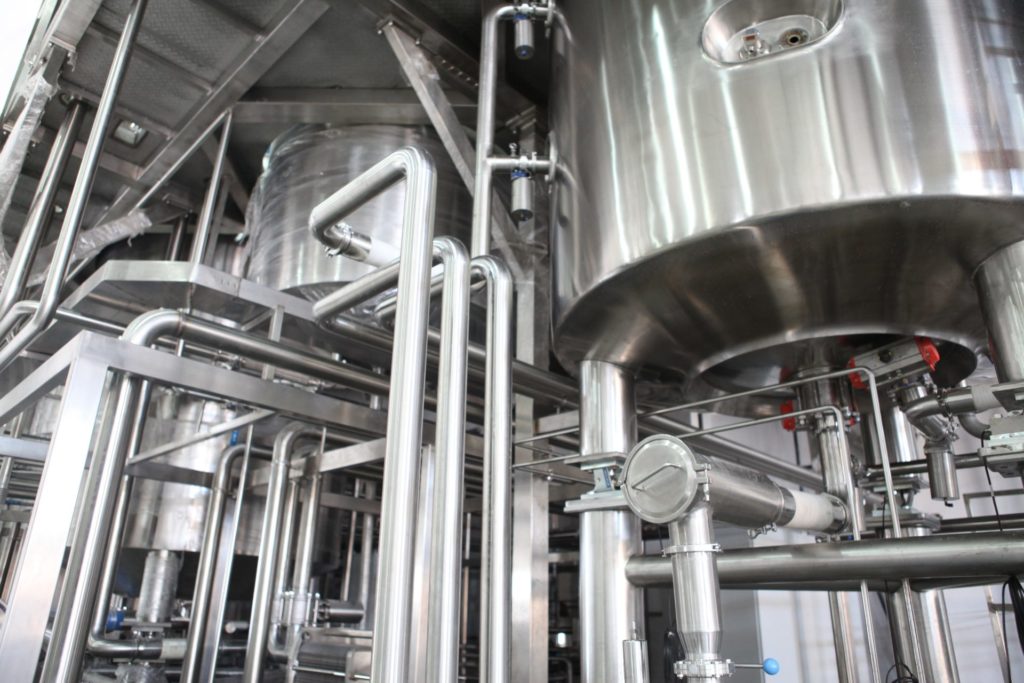
It is predicted that by 2030, between 10% and 20% of all meat, dairy, eggs and seafood consumed will be of alternative origin, but in order to make these projections a reality, bioprocessing capacity needs to be built, scaled, and made available at an affordable price globally.
Led by experts in bioprocessing, engineering, product formulations and food economics, Planetary’s technology is essential to creating the alternative protein products that can meet consumer demand for taste and nutrition, overcoming the current unmet needs. Through scaling biotech enabled alternatives into a global network of sustainably ran bio fermenters of 200,000 to 500,000 liters of production capacity each by 2030, their solution will be a key piece to the future of protein
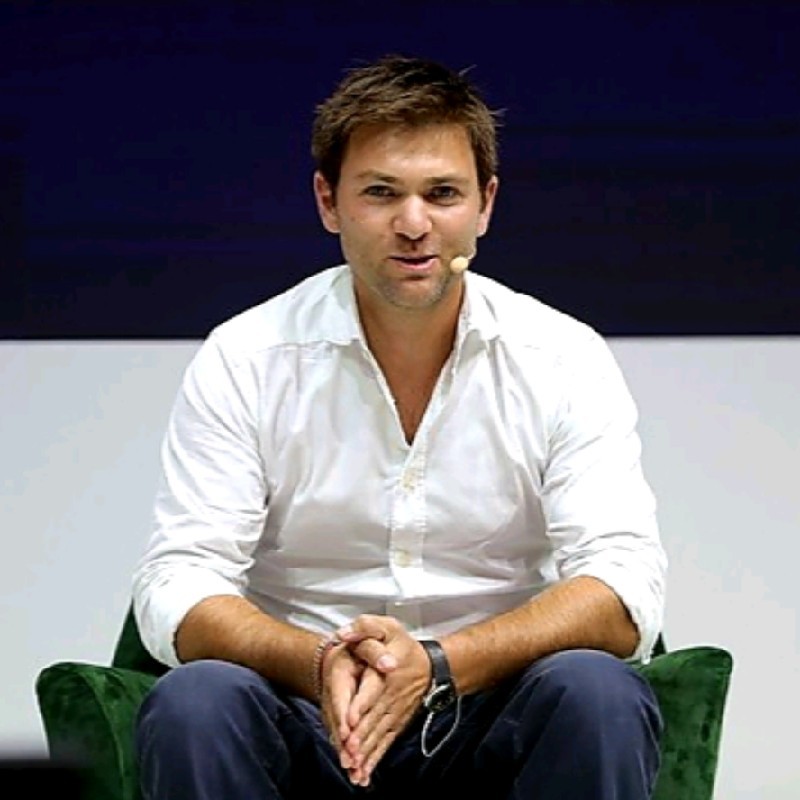
CEO and Co-Founder
Astanor is a not merely a financial investor but a true partner who understands and supports the need for building novel food production infrastructure to feed 10 billion by 2050 without destroying the planet.
Umiami
Umiami
The world’s first plant-based whole cuts
On a mission to offer 100% meat-free products without any compromise.
Entrepreneurs
Tristan Maurel, Martin Habfast
Founded
2020
Partnered
2022
HQ
Paris, France
Category
Innovating Agrifood Transformation Processes
Unlocking the future of protein texturization
Umiami’s “umisation” process, a breakthrough plant protein texturizing process, provides a new experience in plant-based foods, with a better taste, a texture truly comparable to that of animal meat, a better nutritional profile, and a clean label, while maintaining an accessible price point.
While consumers in today’s supermarkets have a plethora of plant-based options to choose from, what’s markedly missing from grocery aisles is whole cuts: steak, chicken breast, whole fish filet – consumers’ favorite meat choices.
Umami’s unique protein texturizing process, “umisation”, provides control of fiber size, direction and thickness, allowing Umiami to produce delicious and convincing whole cuts, unlocking a whole new world of plant-based possibilities.
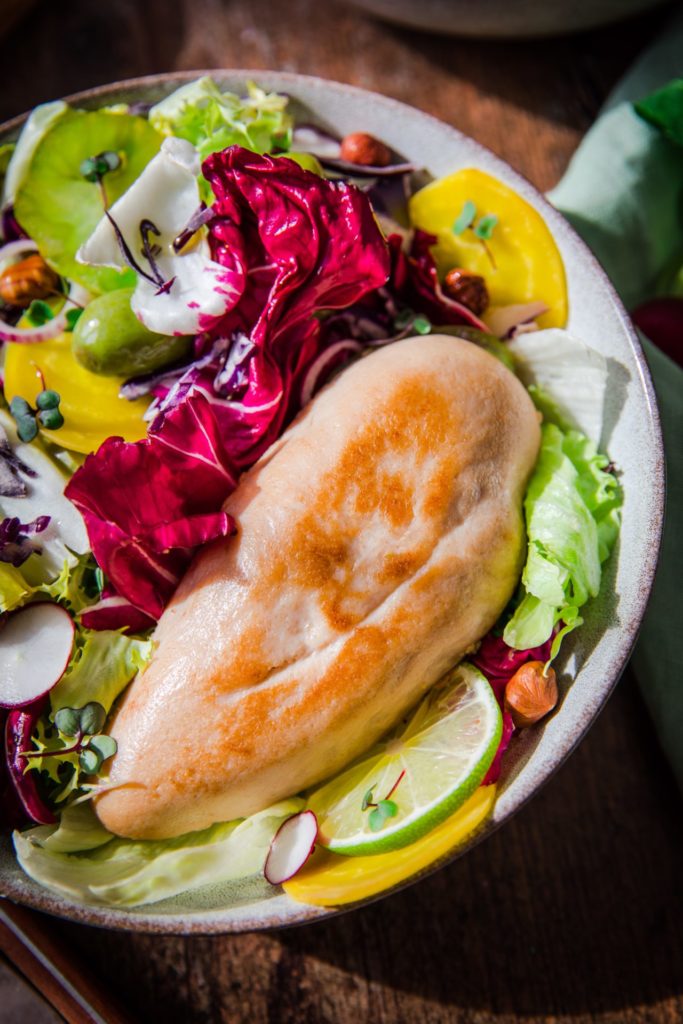
Founded in 2020 by Tristan Maurel and Martin Habfast, Umiami was created to provide a healthy, nutritious, reasonably priced alternative for meat-lovers who want to reduce their meat consumption.
Umiami’s B2B distribution model allows them to focus on research and development and provides a clear path to scaling the company’s impact across the globe. The Umiami team is young and impressive, with a laser sharp focus on the hurdles facing the advancement of the plant-based market. They are poised to lead the next generation of alternative protein companies driving a future of food that is nutritious, delicious and accessible to all.
Umiami news
-
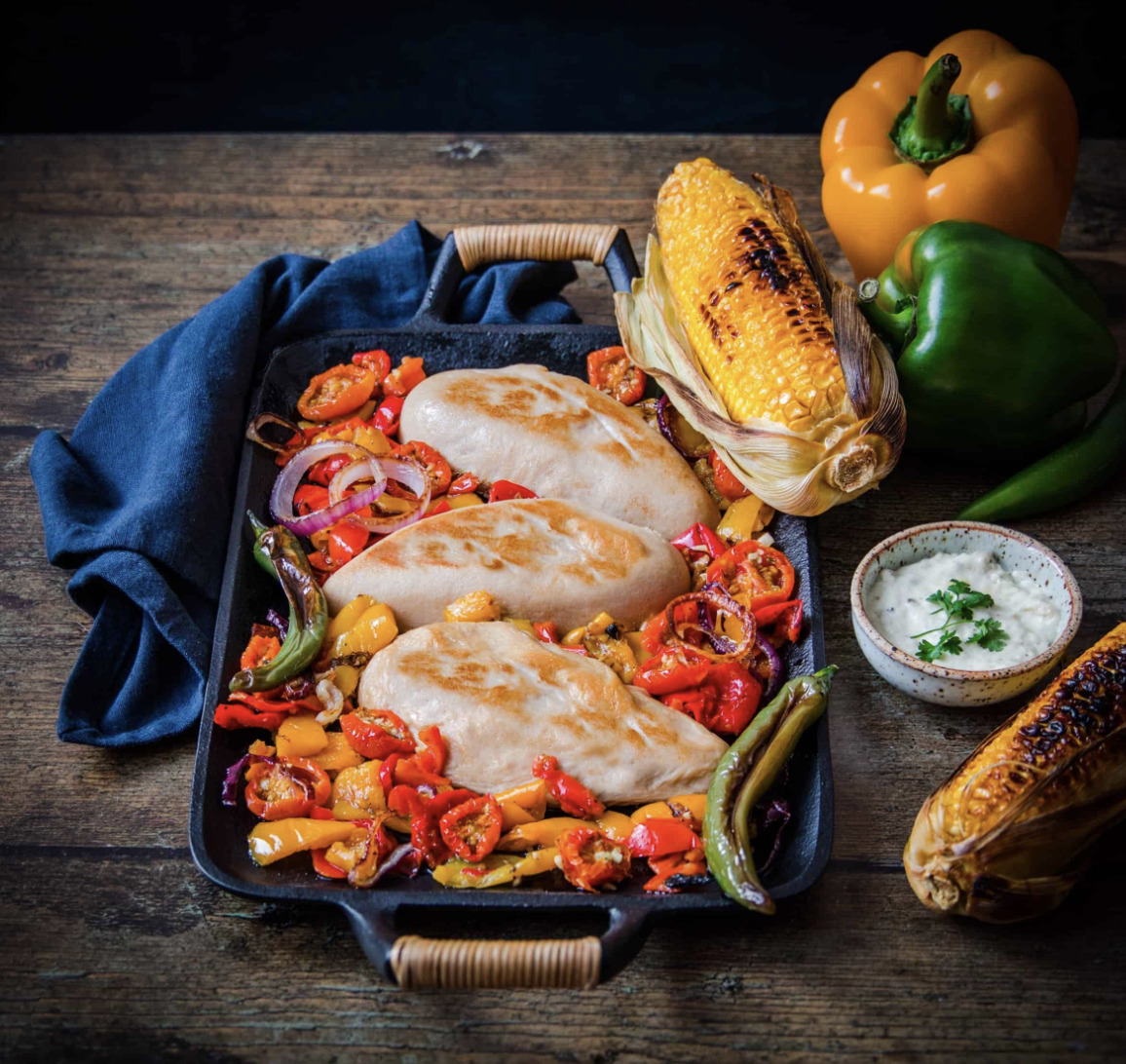
Umiami’s Plant-Based Fillets to Arrive in Swiss Stores Through FFF Fresh & Frozen Food Partnership
-
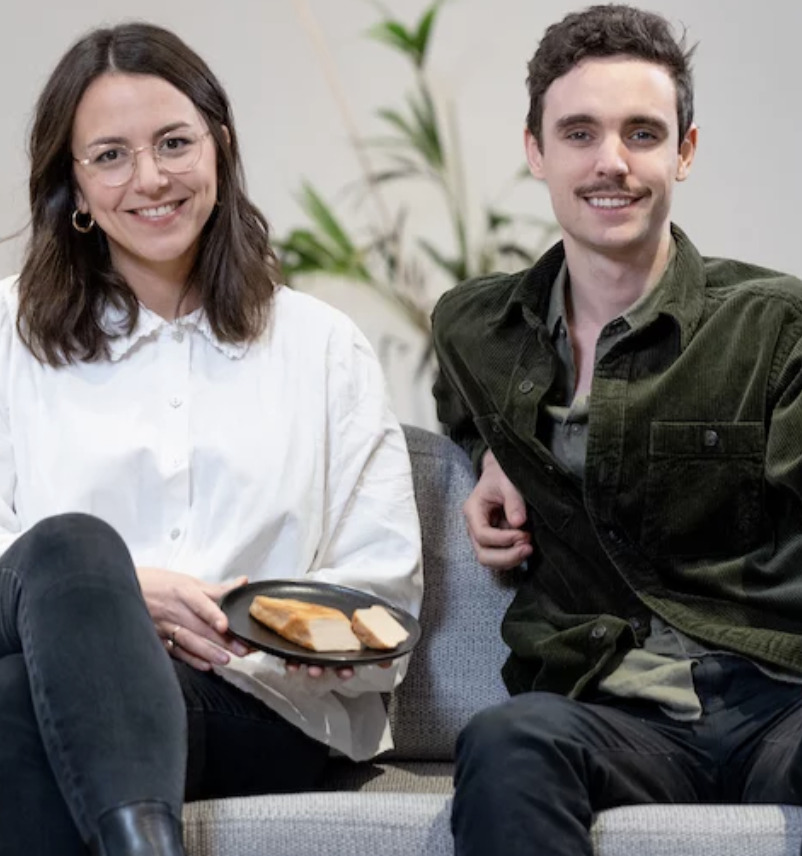
Umiami, recognized as one of the 23 European startups to watch by the Founders Forum Group.
-
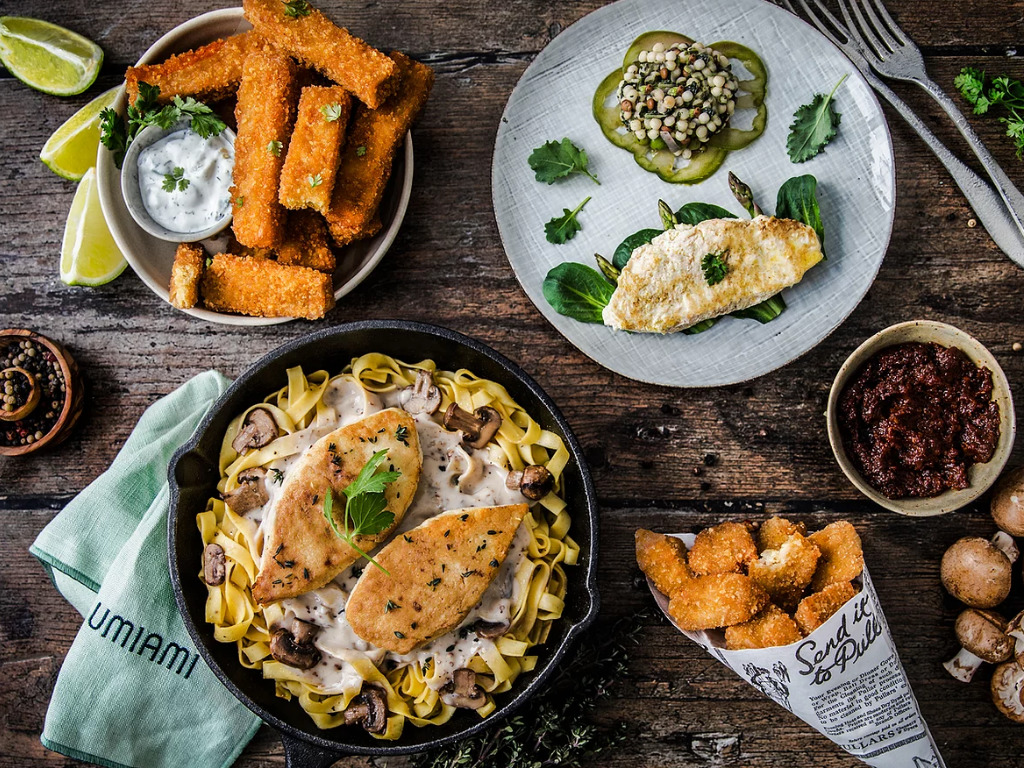
Umiami on France 5: Plant-based meat defends its steak
-
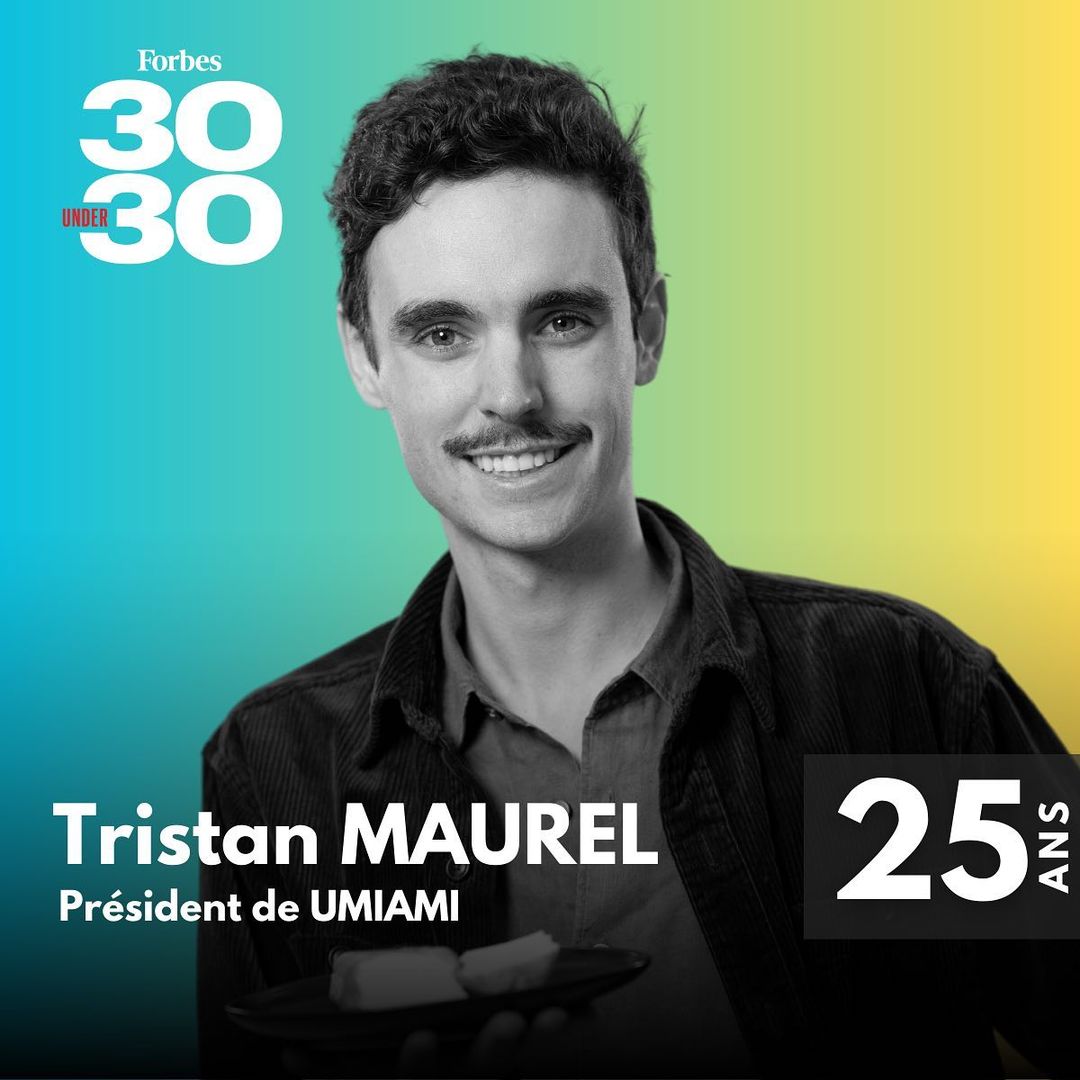
Tristan Maurel, CEO & Co-Founder of Umiami, Forbes 30 under 30
-
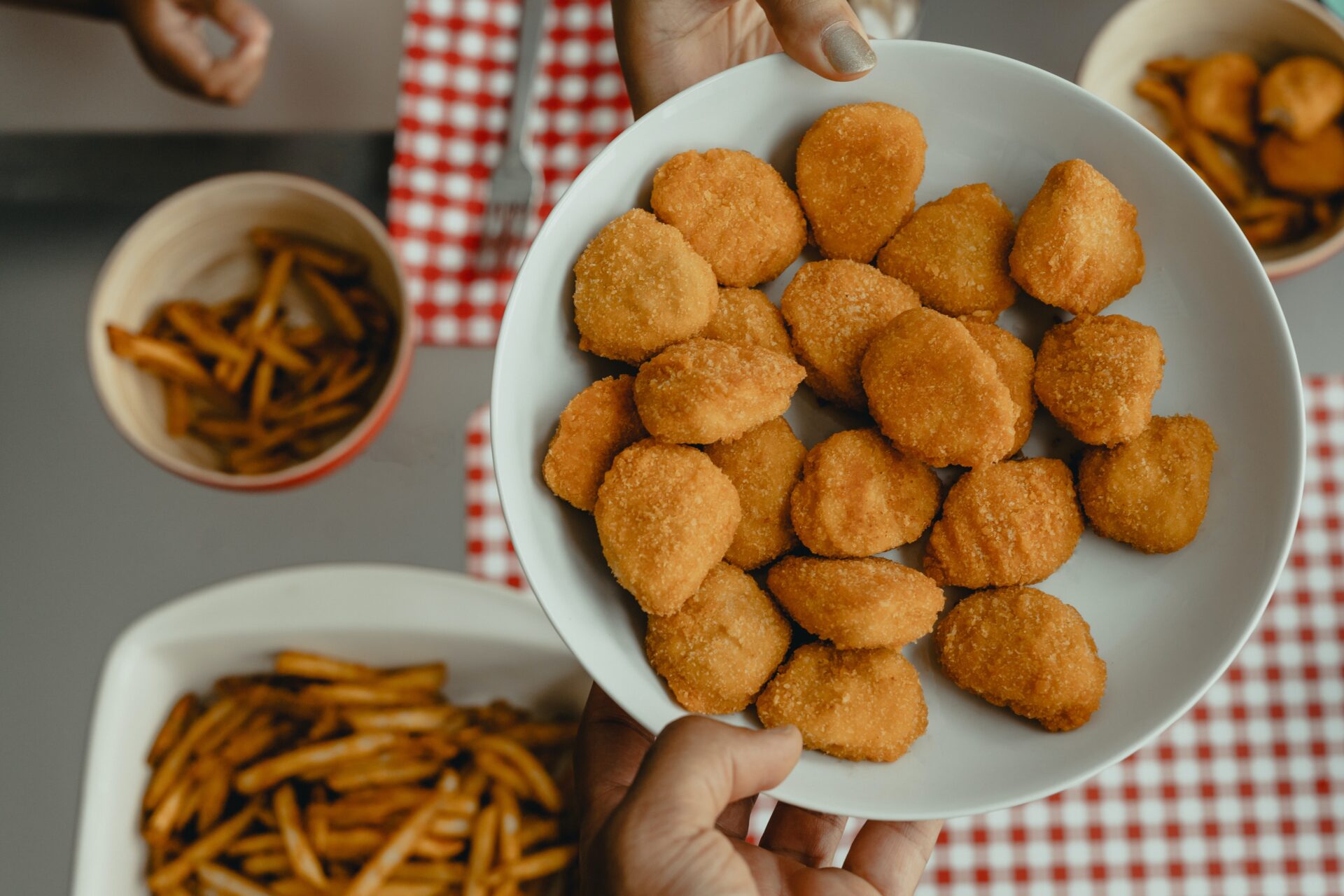
Five New Trends to Spot in the Future of Food
-
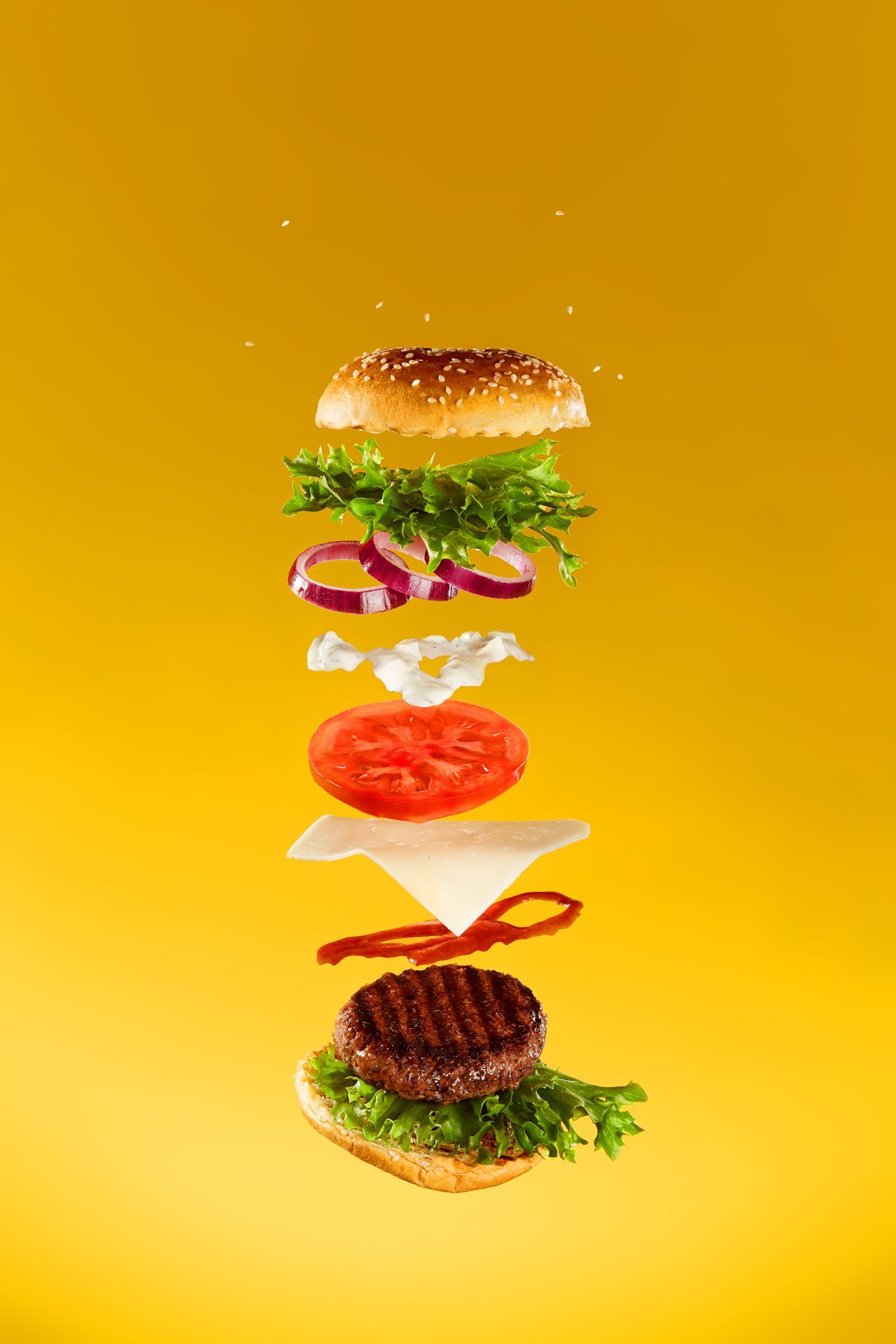
Les alternatives végétales face à 4 caps à franchir
-
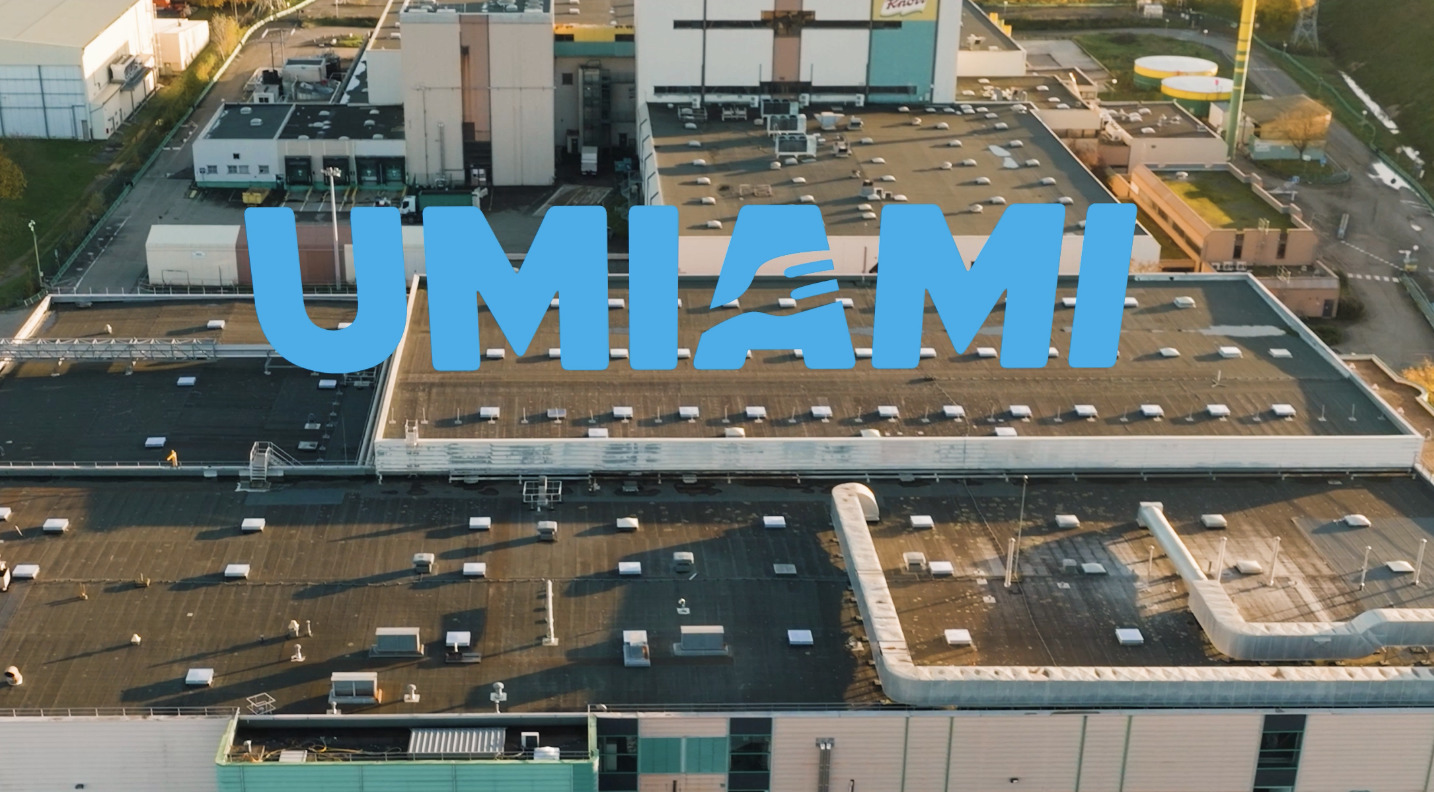
Umiami’s Unilever Factory Takeover Will Put French Vegan Meat on the Global Map
-
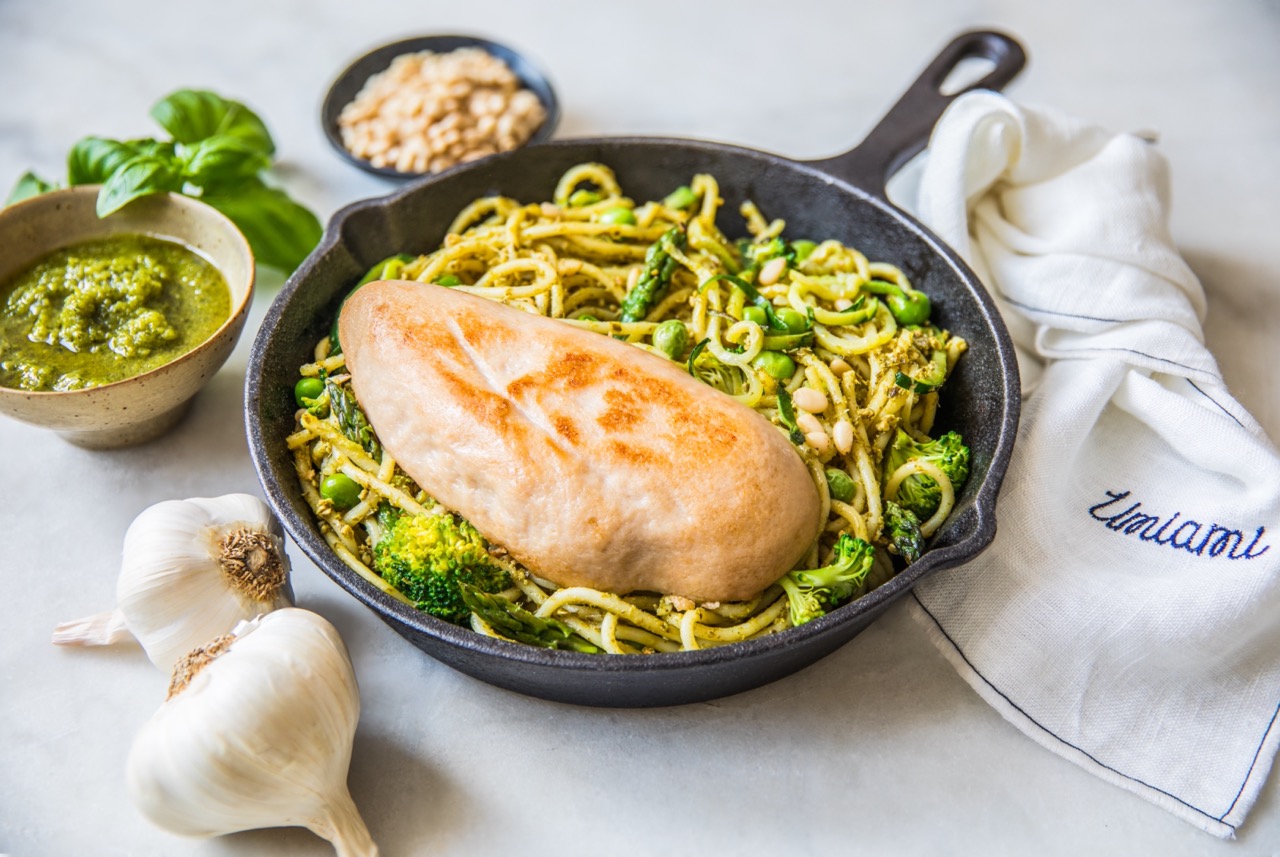
Going for the whole cut: Why we invested in Umiami
-
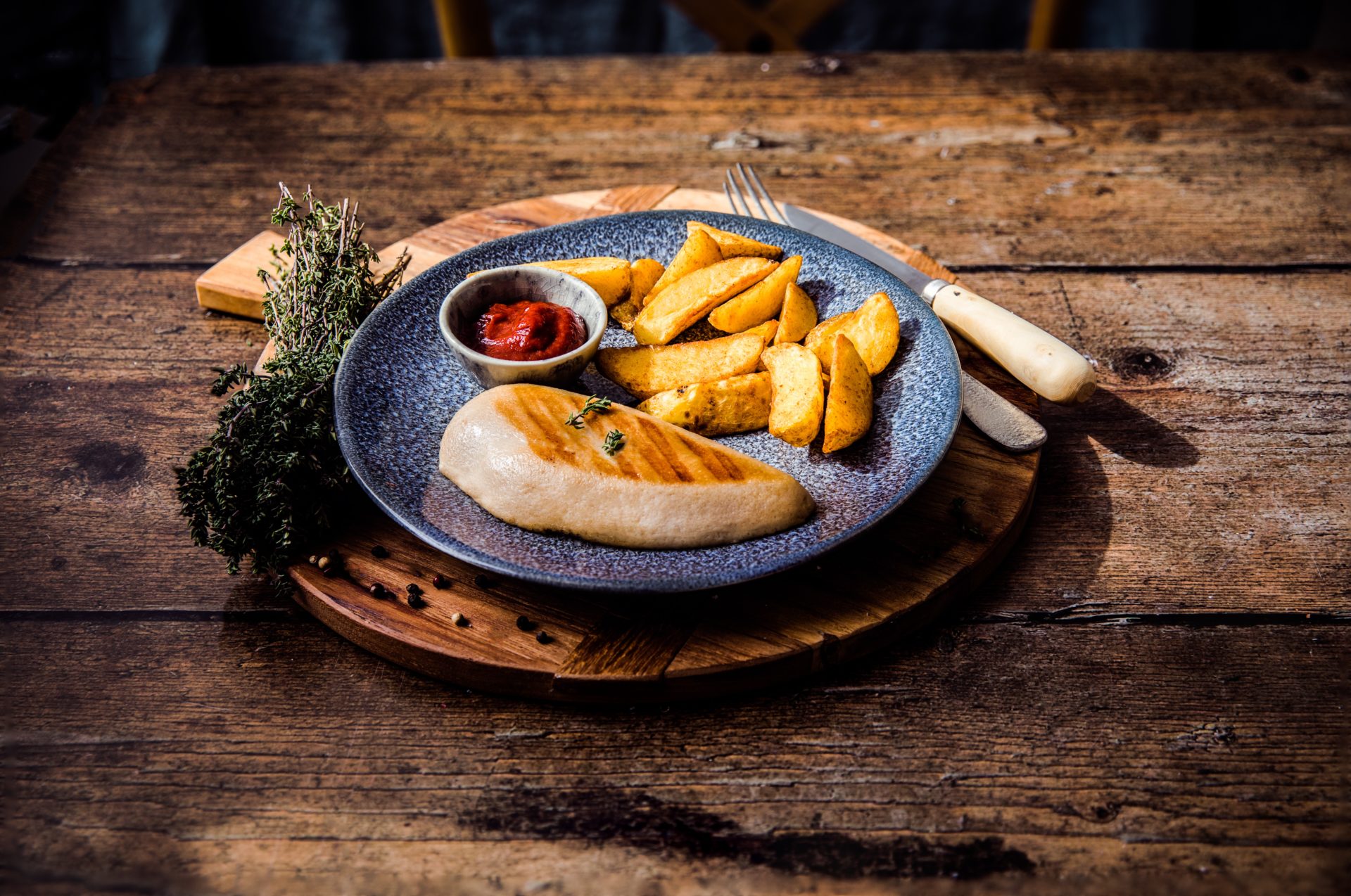
Above Food Partners With Umiami to Develop Plant-Based Whole Cuts
Stockeld Dreamery
Stockeld Dreamery
The plant-based revolution moves to the cheese plate
Stockeld Dreamery is challenging the food status quo with plant-based alternatives, starting with cheese.
Entrepreneurs
Sorosh Tavakoli, Anja Leissner
Founded
2019
Partnered
2019
HQ
Stockholm, Sweden
Category
Innovating Agrifood Transformation Processes
Re-inventing the foods we love
Consumer are demanding plant-based alternatives across all food and beverage segments. Cheese alone represents a $60b market, but existing alternatives fall woefully short of cheese lovers’ expectations and demand for plant-based alternatives that are delicious, nutritious and made from ingredients that are both natural and part of a climate-positive food system.
Today, the traditional dairy industry uses 3,000 litres of water and 12m2 cropland per year to produce 1kg of cheese. In the process, ecologically important areas, such as prairies, wetlands and forests, are put under unsustainable pressure which could be eased through transitioning to a more diverse, plant-based diet.
In early 2019, Sorosh Tavakoli and Anja Leissner, founded Stockeld Dreamery (formerly Noquo Foods). The duo combine the skills of a successful second time entrepreneur, a passionate food scientist and the ambition to build a science-based food company and brand fit for a new generation and changing planet. Their mission is to reduce environmental footprint, animal suffering and improve health through a plant-based cheese product that delivers on taste, price, convenience and transparency. So too do they want to delight the 70% of the world’s population that is lactose intolerant (Source: Physicians Committee for Responsible Medicine).


Stockeld Dreamery is well positioned to benefit from the strong tailwinds of their market niche: a powerful combination of growing transparency, environmental and social challenges (ranging from high carbon footprint, to antibiotic use and resistance and high fat/low nutrition), preference for plant-based products and rejection of animal-based products. For these reasons, consumer demand for the products Stockeld Dreamery is developing is primed and burgeoning. They have a strong foundation of research and learning behind them that’s shaping their focus going forward.

CEO
Deciding to work with Astanor easy given my engagement with them, but also the complete alignment around the challenges with our food system and the opportunities that follows with it.
Stockeld Dreamery news
-

Stockeld Dreamery Makes Good On Ambition To Launch Plant-Based Cream Cheese
-

Venture-Capital Record Makes Sweden New Impact Hub in Europe
-
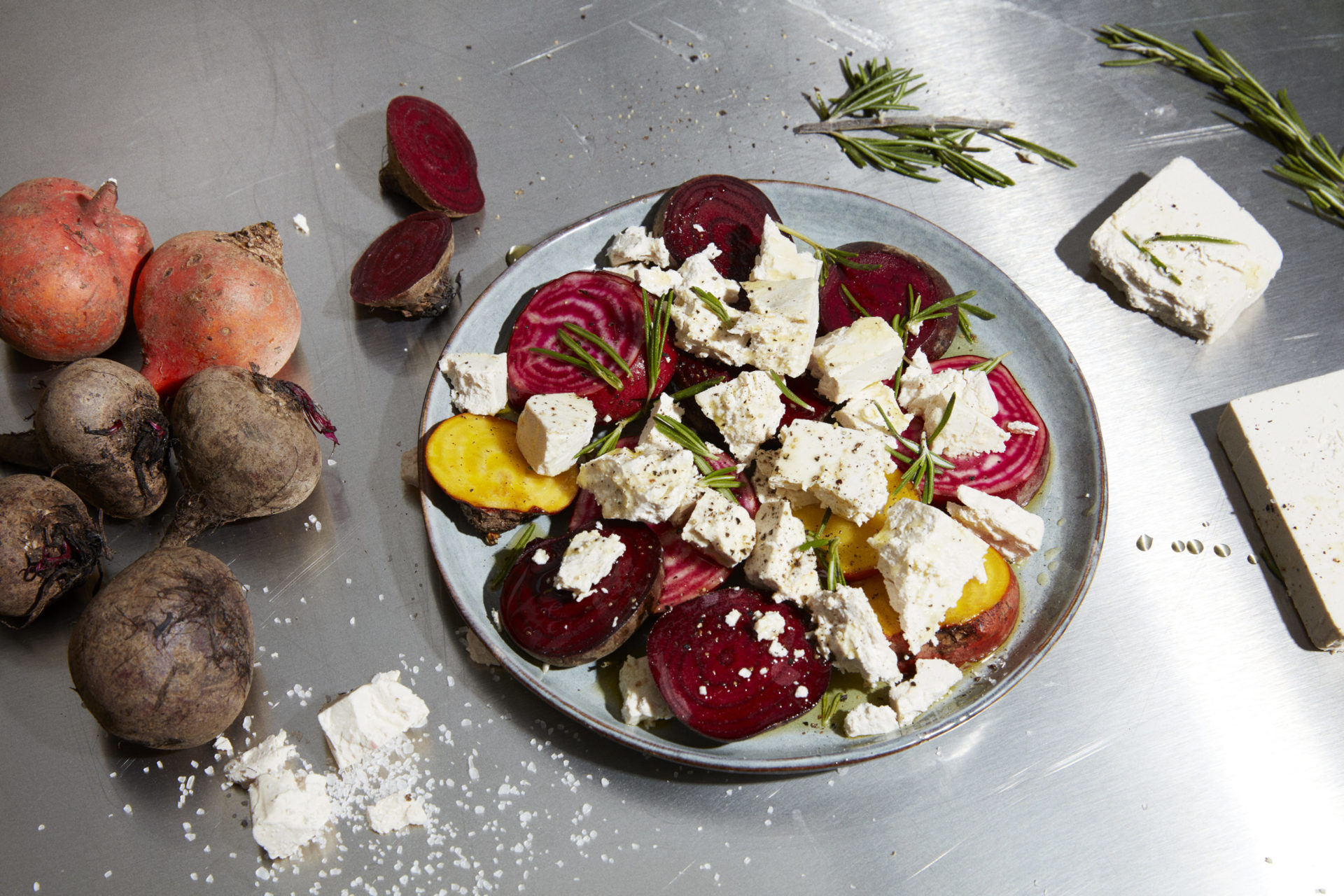
Stockeld Dreamery loves cheese so much that it raised $20M to make it out of legumes
-
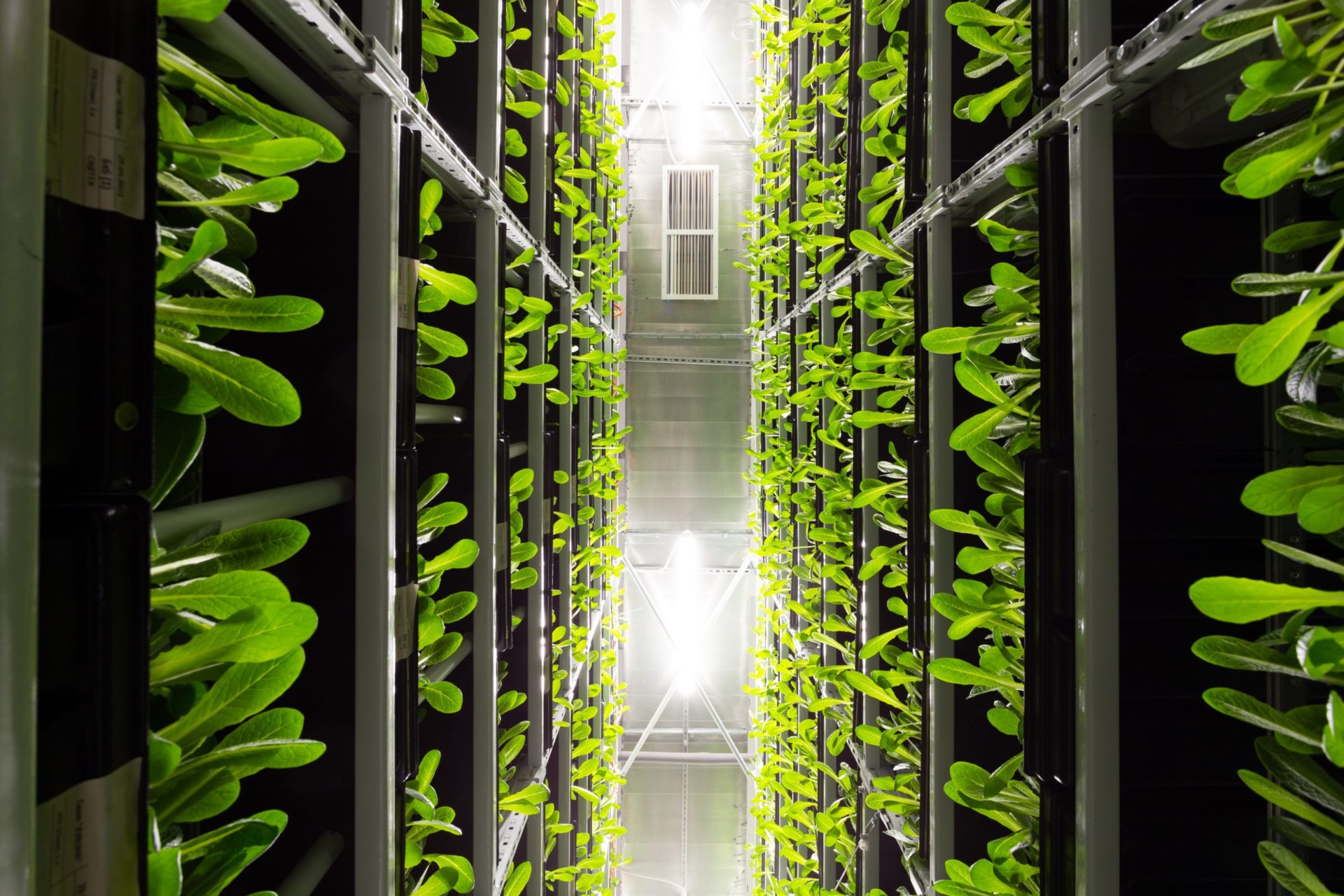
Cocktails in seaweed pods, mealworm pasta and farms inside grocery stores: Welcome to the future of food
-
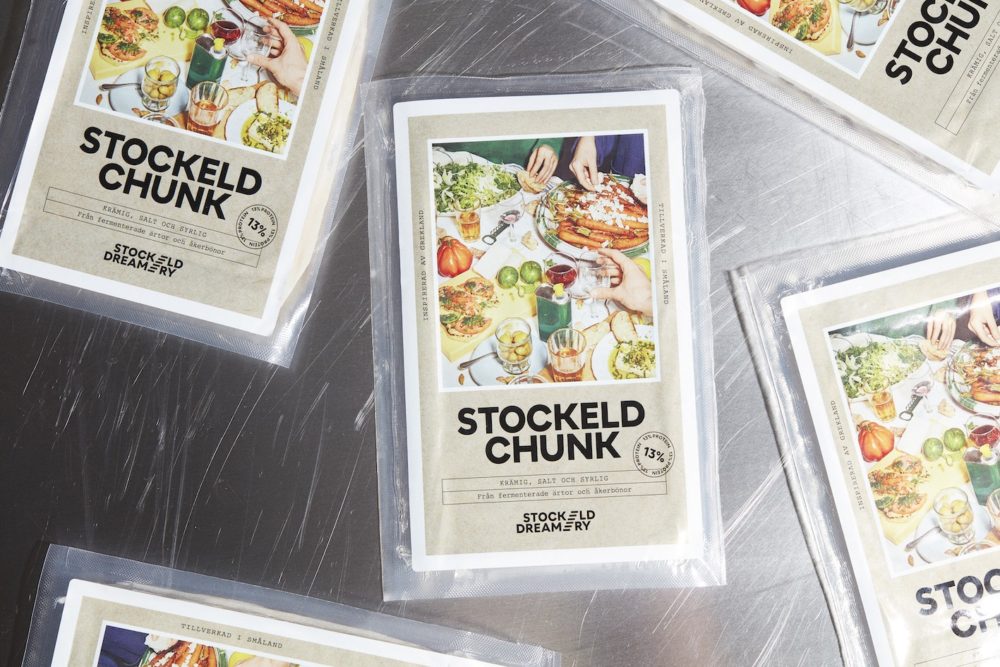
How Stockeld Dreamery is making ‘the world’s most ambitious cheese’
-
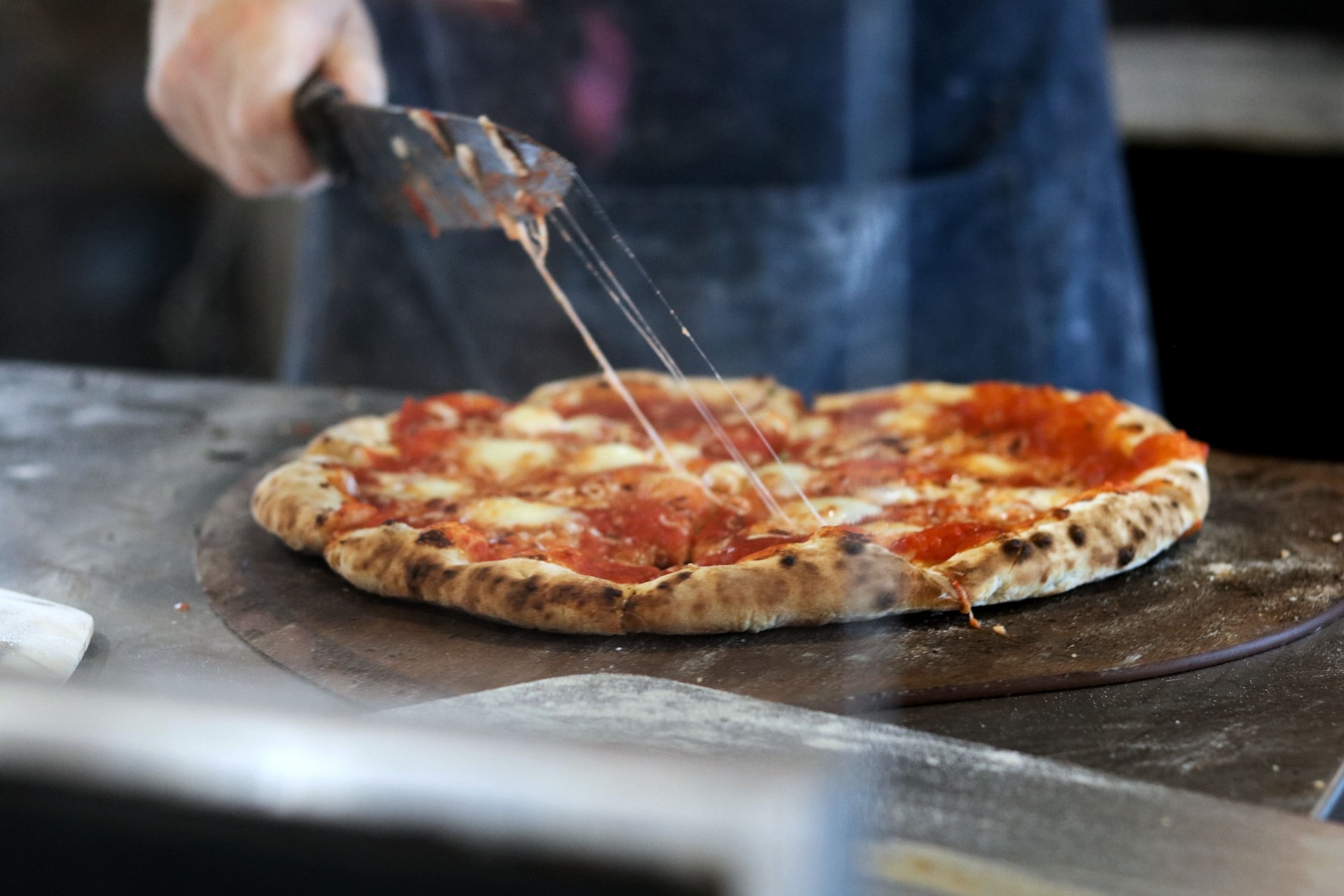
Noquo Foods Closes a €3.25M Seed Round to “Reinvent Cheese”


